
EXXARO LEADING THE CHARGE TOWARDS SUSTAINABILITY AND GROWTH


KPMG THE GLOBAL FIRM PIONEERING ESG AUDITING AND INNOVATION
SAP
REDEFINED AND DESIGNED TO DELIVER:
PACKING A PUNCH IN DIGITAL SUPPLY CHAIN MANAGEMENT



















EXXARO LEADING THE CHARGE TOWARDS SUSTAINABILITY AND GROWTH


KPMG THE GLOBAL FIRM PIONEERING ESG AUDITING AND INNOVATION
SAP
REDEFINED AND DESIGNED TO DELIVER:
PACKING A PUNCH IN DIGITAL SUPPLY CHAIN MANAGEMENT

















Welcome to the October 2024 Edition of Business Enquirer - Issue 130!
In this edition, we explore the transformative power of digitalisation and sustainability shaping today’s business landscape. Leading this change is SAP, a global enterprise software leader that has evolved from on-premise solutions to a fully cloud-based model, redefining supply chain management with its autonomous supply chain capabilities. Through its Design to Operate (D2O) portfolio, SAP is empowering businesses to streamline processes, enhance visibility, and optimise operations in an increasingly complex global environment.
We also shine a spotlight on KPMG, a trailblazer in ESG (Environmental, Social, and Governance) auditing and advisory services. With over 150 years of experience, KPMG is guiding businesses through the evolving landscape of sustainability regulations, helping clients not just achieve compliance but also leverage ESG strategies to drive growth and innovation.
Additionally, this edition features an exclusive look at the Top 10 CMOs (Chief Marketing Officers), the visionary leaders behind groundbreaking marketing strategies. These CMOs are not only elevating their brand presence but are also adeptly navigating the rapidly changing digital landscape, playing a crucial role in building customer engagement and trust in today’s competitive market.
These highlights are just a glimpse of what this edition has to offer. Each story provides insights into the passion, innovation, and determination driving these companies and leaders forward. We hope you find these narratives as inspiring as we do.
If you have a business story you wish to share in 2024, please contact our Head of Production via production@busenq.com


Laura Watling Editor in Chief


Jamie Bolton Head of Design
The editor and publishers do not guarantee the accuracy of statements made by contributers or advertisers, or accept responsibilty for any statement they express in this publication. The opinion of the contributors may not necessarily be the opinion of the editor or publishers. All content including the presentation therof in this magazine is the property of BE Media and protected by internation al copyright laws. You may not copy, reproduce, distribute, transmit, modify, create derivitave works, or in any other way exploit any part of copyrighted material without prior written permission from BE Media ©BE Media
EMBRACING THE CLOUD: HOW LEADING COMPANIES ARE SHAPING THE FUTURE NEWS 018
UNICORN COMPANIES: THE MYTHICAL BEASTS OF THE BUSINESS WORLD
INTERNATIONAL HOTEL GROUP BUSINESS PARTNER UPDATES
IHG HOTELS & RESORTS RENEWS STRATEGIC PARTNERSHIP WITH APSN IYC
IYC ANNOUNCES EXCLUSIVE GLOBAL SALES REPRESENTATION OF MOONEN YACHTS
EXXARO IN 2024: LEADING THE CHARGE TOWARDS SUSTAINABILITY AND GROWTH THE GLOBAL FIRM PIONEERING ESG AUDITING AND INNOVATION
DRAPER TOOLS 088
BUSINESS-WIDE GROWTH FOR BRITISH BASED TOOL SUPPLIER IN 2024
EXXARO KPMG 066 052 096
MAXIMISES EFFICIENCY WITH SEMI-AUTOMATED WAREHOUSE SOLUTION FROM SSI SCHAEFER SSI SCHAFER
SUROS CAPITAL: REDEFINING SHORT-TERM LUXURY ASSET LENDING
COVER FEATURE 042 REDEFINED AND DESIGNED TO DELIVER: PACKING A PUNCH IN DIGITAL SUPPLY CHAIN MANAGEMENT SAP
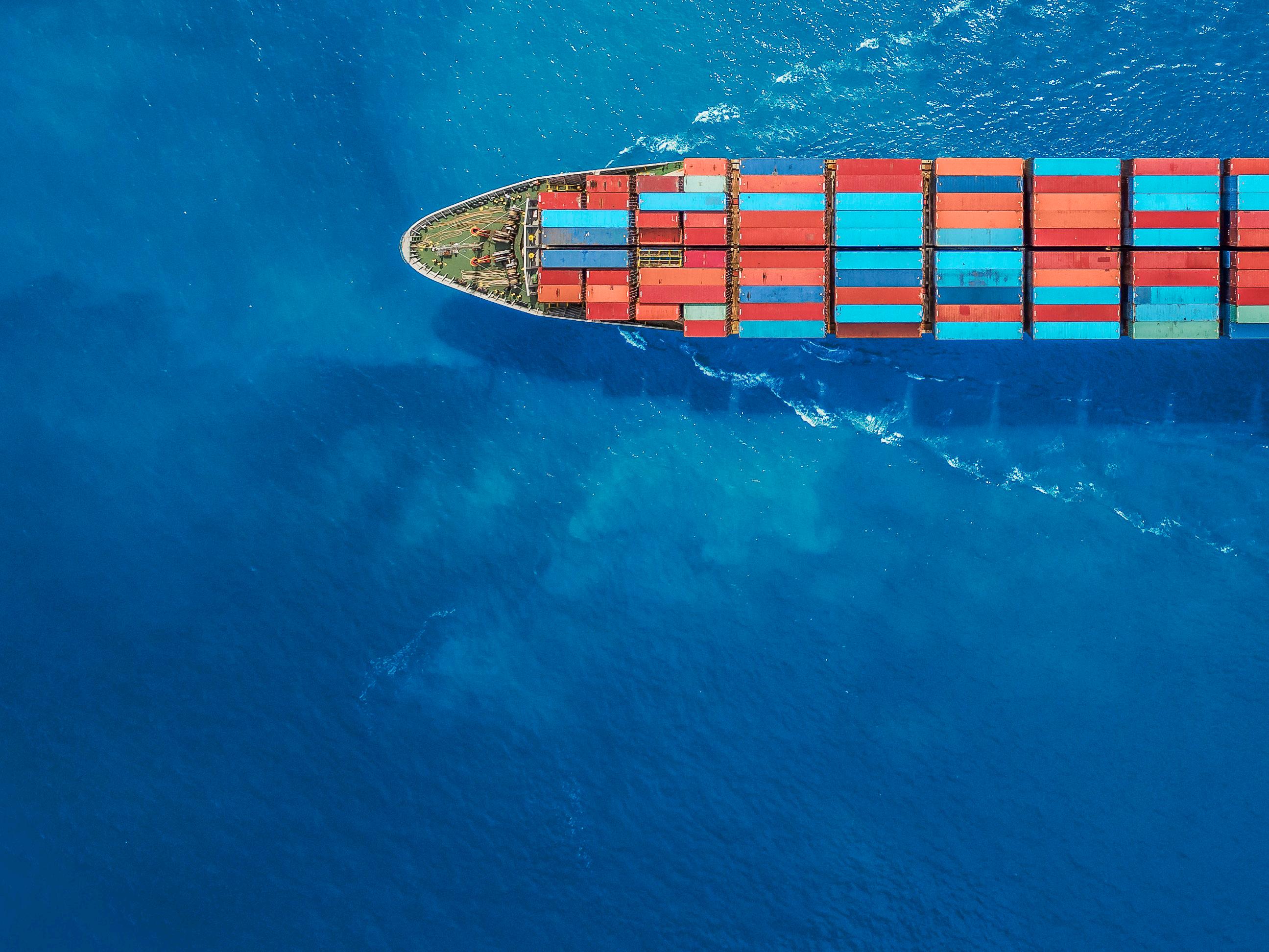
122
SUNDOWN FESTIVAL 2024
THOUSANDS OF FESTIVAL-GOERS ENJOY MUSIC AND SUNSHINE AT THE 12TH SUNDOWN FESTIVAL LIFESTYLE
SOL DE JANEIRO TO BRING BRAZILIAN SUMMER TO LONDON BEHIND THE SINGULAR ARCHITECTURE OF THE LANA HOTEL


Apprenticeships and training programmes across all IHG hotels in Singapore
IHG Hotels & Resorts and APSN strengthens their long-term strategic partnership with a three-year MOU renewal agreement to support APSN’s students and trainees across all IHG hotels and its office in Singapore.
The multi-year agreement, the second consecutive MOU signed between the two parties, includes philanthropy, advocacy, volunteering, and employment opportunities. IHG hotels in Singapore will provide full-time employment opportunities, on-the-job training and internships, and regular social activities

for students in the hotels, where APSN students and trainees take on front office roles such as concierge and bellman, or operational roles like kitchen stewards, housekeepers and service staff.
This announcement comes on the back of a 34-kilometre Giving For Good relay that IHG has held for the past three consecutive years that spans all 13 IHG hotels in Singapore and its Support Centre to raise funds for APSN. The activity held during IHG’s Giving for Good month of September, is part of a global initiative where colleagues volunteer in activities that support their local communities. This is part of IHG’s Journey To Tomorrow, a 10-year action plan to shape the future of responsible travel and to improve the lives of 30 million people around the world by 2030.
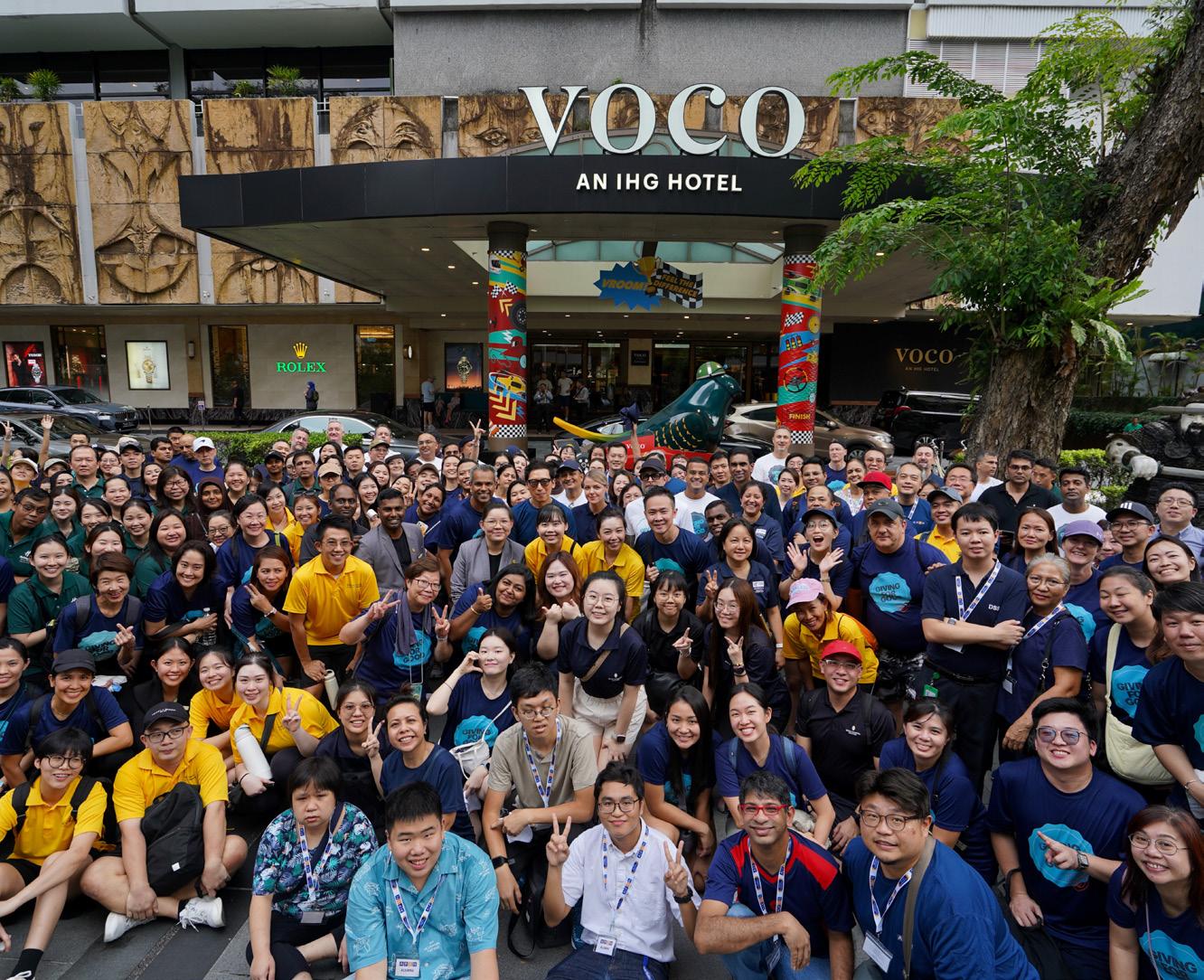
Rajit Sukumaran, Senior Vice President and Managing Director, East Asia & Pacific, IHG Hotels & Resorts said: “I am proud at IHG to be a pioneer in building and supporting an inclusive culture and society, a mission that is closely aligned with Singapore’s Enabling Masterplan 2030 goals. Last year in Singapore, colleagues dedicated over 2,500 hours to community partnerships and impacting over 6,500 lives. Diversity, equity and inclusion is an integral part of IHG’s culture and we are committed to serving the communities in which we operate.”
“Over the last 30 years, IHG has supported the hiring of people with disabilities by providing full-time employment opportunities, on-the-job training and internships. Our strong partnership with organisations like APSN has strengthened
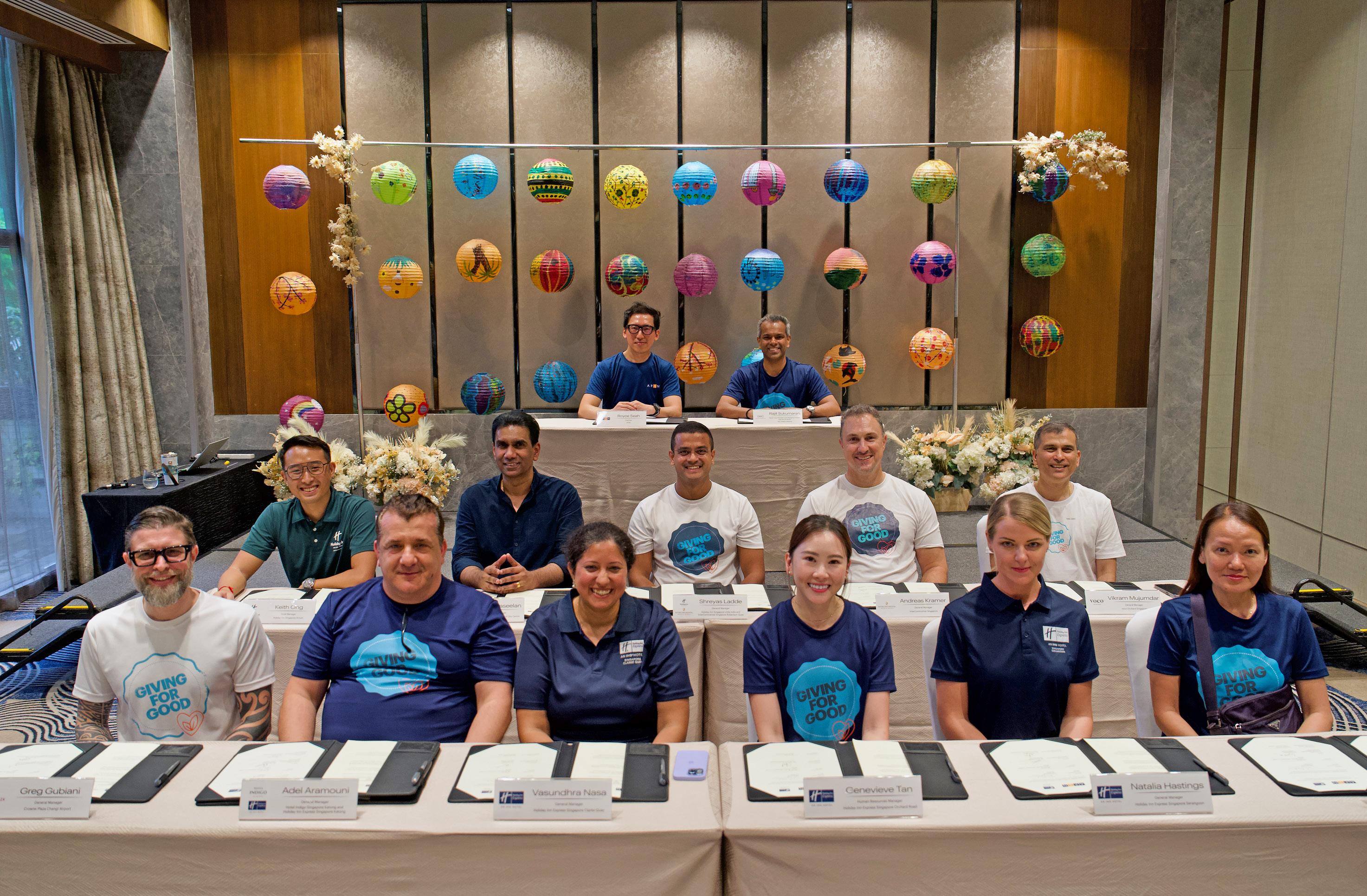
our workplace culture and we have seen a shift in our colleagues’ perceptions and embracing diversity in the workplace.”
“I’m confident that our partnership with APSN will grow from strength to strength as we work together to make a positive impact in our community and an environment that is truly understanding of others.”
Established in 1976, APSN is a social service agency dedicated to empowering individuals with mild intellectual disability (IQ 50-70). With a focus on education, training, and support, APSN has helped over 6,000 beneficiaries achieve their full potential. The programmes, offered through 4 schools and 3 centres, cater to individuals at all stages of life.
Royce Seah, Chairman, APSN Ltd. said: “IHG has been a wonderful partner and a great supporter of APSN over the years. Our strong collaborative partnership has made a significant impact on the lives of many of our beneficiaries, opening new
Left to right (top row): Royce Seah, Chairman, APSN Ltd, Rajit Sukumaran, Senior Vice President and Managing Director, East Asia & Pacific, IHG Hotels & Resorts
Left to right (second and bottom row): IHG GMs and leaders in Singapore
Backdrop: Lanterns hand painted by the students and alumni of APSN
doors of opportunity on various fronts for students and trainees with special needs. It is with partners like IHG where we can further our mission of empowering and guiding them into an inclusive society.”
More than three decades have passed since 1989 when Holiday Inn Orchard City Centre became a pioneer in Singapore in hiring people with disabilities. Today, 5% of IHG’s full-time workforce in Singapore are people with disabilities.
With over 1,600 colleagues across 13 hotels in Singapore, building an inclusive workplace that cares is a priority for the group. A recent IHG survey showed the positive benefits of volunteering work with 100% of Singapore-based colleagues said they felt more connected to IHG’s purpose and 100% said they were more likely to recommend IHG as a great place to work. Focusing on caring for people and communities have enabled IHG to win the Kincentric Best Employer for 2024.
www.ihgplc.com
IYC is delighted to announce that it has signed an exclusive global sales representation agreement with Moonen Yachts. This strategic alliance marks a significant milestone for both companies, bringing together Moonen Yachts’ outstanding shipbuilding expertise and IYC’s extensive network of brokers and clients worldwide.
With this global sales representation, IYC is excited to capitalize on its expansive global network, industry-leading marketing expertise, and dynamic platform to drive sales. Through various activations, targeted yacht shows and comprehensive reach, IYC and Moonen will collaborate to amplify the visibility of the shipyard’s fleet and attract discerning clients worldwide.
Moonen Yachts, a Dutch boutique shipyard, is dedicated to delivering exclusive and exceptional superyachts in the 111’ to 131’ (34m to 40m) size range. With a focus on upholding the finest tradition of Dutch yacht building, Moonen Yachts ensures an exclusive ownership experience by delivering only two yachts per year.
With over 40 years of expertise in yacht construction, they have established a reputation for building top-quality long-range yachts with steel hulls and aluminum superstructures. Having delivered over 80 yachts worldwide, including renowned classics like the Moonen 84 and Moonen 97, as well as the modern Moonen Martinique, their
craftsmanship and attention to detail are widely recognized. Moonen Yachts’ passion lies in delivering exceptional yachts, providing excellent support, and ensuring every detail is of the highest quality.
This representation is further bolstered by the involvement of two highly experienced IYC Sales Consultants, Head of Sales UK, Richard Gray, and Managing Partner California, Matthew Stone, who played key roles in facilitating this collaboration and will lead the sales efforts supported by IYC’s global salesforce. “We are extremely proud to announce a landmark strategic sales representation between IYC and Moonen Yachts, marking a pivotal moment in our companies’ histories. This collaboration brings together the unparalleled expertise and sales support of IYC, one of the world’s leading yacht brokerage houses, with Moonen Yachts’ renowned Dutch craftsmanship and pioneering yacht-building history. Together, we will enhance the sales efforts of the shipyard, ensuring that both clients and brokers receive exceptional support throughout every stage of their Moonen Yachts experience. We are honored to be part of this journey and look forward to



www.iyc.com
supporting Matthew and Louise Baxter’s vision of propelling the shipyard into the future,” said Gray.
“We are thrilled to announce our global partnership with Moonen Yachts. This partnership represents a significant milestone for IYC, Moonen Yachts, Richard Gray, and myself, as it brings together our shared commitment to excellence, innovation, and client satisfaction. Moonen Yachts is known for delivering only the highest-quality vessels; a testament to the manufacturer’s philosophy, generational workforce, and legacy. Matthew and Louise Baxter believe in their product and people and are not afraid to take calculated risks to ensure the company’s success,” added Stone.
Owners of Moonen Yachts, Matthew and Louise Baxter, also expressed enthusiasm for this collaboration: “IYC’s global reach, experience in the superyacht market, and knowledge and appreciation of the Moonen brand were critical elements underscoring the strategy to work together. As a Dutch builder of extremely high-quality semi-custom steel-hulled yachts with global navigational capacity it’s important for Moonen Yachts to be strongly represented in key global markets to reach discerning customers that understand the value, comfort, safety, and lifestyle that a Moonen Yacht provides. We believe IYC will do a great job for us and that we will work well together for the benefit of Moonen, IYC, and our customers.”
The marketing industry has undergone a seismic shift over the past decade, driven by the relentless advancement of technology and the increasing availability of data. What was once an industry largely based on intuition and creativity has evolved into a domain where data-driven decision-making, automation, and precision targeting reign supreme. The transformation is not just a trend; it is a fundamental change that is reshaping the entire landscape of marketing. In this article, we explore how the largest companies in the industry, such as Dentsu, Publicis Groupe, and others, are leading this revolution through the use of technology and data. We delve into specific use cases, projects, and insights from senior leaders to understand how these changes are impacting the future of marketing.
The emergence of big data has been one of the most significant factors in the transformation of the marketing industry. Companies now have access to an unprecedented amount of information about consumers, from their browsing habits to their purchasing behaviors. This data allows marketers to create highly
personalized and targeted campaigns, moving away from the traditional onesize-fits-all approach.
Publicis Groupe, one of the largest marketing and communications companies in the world, has been at the forefront of this transformation. Through its data-centric platform, Epsilon, Publicis has been able to harness consumer data to drive more effective marketing strategies. Epsilon’s approach involves collecting and analyzing data from various sources, including online transactions, social media interactions, and customer surveys, to build a comprehensive view of the consumer. This allows Publicis to deliver personalized marketing messages at scale, significantly improving the ROI of their campaigns.
Arthur Sadoun, CEO of Publicis Groupe, has emphasized the importance of data in modern marketing, stating, “Data is the new oil of the marketing industry. It powers everything we do, from understanding consumer behavior to optimizing our media spend. Our ability to harness data and use it to deliver personalized experiences is what sets us apart in the marketplace.”

Artificial Intelligence (AI) and automation are other key drivers of change in the marketing industry. AI enables marketers to analyze vast amounts of data quickly and accurately, identify patterns, and make predictions that were previously impossible. This capability is being used to optimize everything from ad placements to content creation.
Dentsu, a global advertising and public relations company, has been leveraging AI to enhance its marketing efforts. Through its proprietary AI platform, Dentsu has developed advanced predictive models that help clients understand which marketing strategies are likely to be most effective. For example, Dentsu has used AI to analyze historical data from past campaigns, enabling it to predict which creative elements (such as visuals or messaging) are most likely to resonate with a target audience. This allows Dentsu to optimize campaigns in real time, adjusting elements to improve performance and maximize engagement.
Wendy Clark, CEO of Dentsu International, has spoken about the transformative impact of AI on the marketing industry, saying, “AI is not just a tool; it’s a gamechanger. It allows us to go beyond human capabilities, analyzing data at a scale and speed that was previously unimaginable. This enables us to deliver more effective, efficient, and personalized marketing solutions for our clients.”
The modern consumer interacts with brands across a multitude of channels, from social media to physical stores. As a result, the concept of omnichannel marketing has become increasingly important. Omnichannel marketing involves creating a seamless and integrated customer experience across all touchpoints, ensuring that the messaging and branding remain consistent no matter where the consumer interacts with the brand.


Publicis Groupe has been a leader in the development of omnichannel marketing strategies. By integrating data from various channels, including online, offline, and mobile, Publicis is able to create a unified view of the consumer. This allows them to deliver consistent messaging across all platforms, ensuring that the brand’s voice remains coherent and impactful. For example, a consumer might receive a targeted email based on their online browsing history, followed by a personalized ad on social media, and finally, a tailored in-store experience—all of which are coordinated to reinforce the same brand message.
Carla Serrano, Chief Strategy Officer at Publicis Groupe, has highlighted the importance of omnichannel marketing, stating, “Consumers today expect a seamless experience across all channels. They don’t think in terms of online or offline; they think in terms of the brand. Our job is to ensure that the brand’s message is consistent, regardless of where the consumer is engaging with it. This requires a deep understanding of consumer behavior and a sophisticated approach to data integration.”
Programmatic advertising, which involves the automated buying and selling of online ad space, has become a cornerstone of modern marketing. This approach uses algorithms and machine learning to purchase ad space in real time, allowing marketers to target specific audiences with precision. The efficiency and effectiveness of programmatic advertising have made it an essential tool for companies looking to maximize their digital ad spend.
Dentsu has been a pioneer in the use of programmatic advertising, leveraging its advanced data analytics capabilities to deliver highly targeted campaigns. By using programmatic advertising, Dentsu is able to reach the right audience at the right time, with the right message, significantly improving the performance
of its campaigns. For example, Dentsu has used programmatic advertising to target specific demographics with tailored ads during major sporting events, resulting in higher engagement and conversion rates.
Jacki Kelley, CEO of Dentsu Americas, has spoken about the advantages of programmatic advertising, stating, “Programmatic is a game-changer for marketers. It allows us to deliver highly targeted ads to the right audience, at the right time, and at the right price. This level of precision was unheard of in traditional advertising, and it’s revolutionizing the way we approach digital marketing.”
As data becomes more integral to marketing strategies, the issue of consumer privacy has come to the forefront. With regulations such as the General Data Protection Regulation (GDPR) in Europe and the California Consumer Privacy Act (CCPA) in the United States, companies are now required to be more transparent about how they collect, store, and use consumer data. This has led to a growing emphasis on ethical data use in the marketing industry.
Publicis Groupe has been proactive in addressing consumer privacy concerns, implementing strict data governance policies to ensure compliance with global regulations. The company has developed tools and processes to anonymize and encrypt consumer data, minimizing the risk of breaches and ensuring that consumer information is handled responsibly. Publicis has also been transparent about its data practices, providing consumers with clear information about how their data is used and offering them control over their personal information.
Nigel Vaz, CEO of Publicis Sapient, has emphasized the importance of ethical data use, stating, “In today’s world, trust is everything. Consumers need to know that their data is being handled responsibly

and that their privacy is being respected. At Publicis, we take this responsibility seriously, and we are committed to maintaining the highest standards of data governance and transparency.”
While data and technology have undoubtedly transformed the marketing industry, creativity remains at the heart of successful campaigns. The challenge for marketers today is to find the right balance between data-driven insights and creative expression. This is where creative technology comes into play— using technology to enhance and amplify creative ideas.
Dentsu has been a leader in the integration of creative technology into its marketing strategies. By combining data analytics with cutting-edge creative tools, Dentsu is able to produce campaigns that are not only effective but also visually

compelling and emotionally resonant. For example, Dentsu has used augmented reality (AR) to create immersive brand experiences, allowing consumers to interact with products in new and innovative ways.
Tim Andree, Executive Chairman of Dentsu International, has spoken about the importance of creative technology, saying, “Technology is a powerful enabler of creativity. It allows us to bring ideas to life in ways that were previously unimaginable. But at the end of the day, it’s the creativity that resonates with consumers. Our goal is to use technology to enhance, not replace, the creative process.”
Several companies have embarked on groundbreaking projects that exemplify the transformation of the marketing
industry. These case studies highlight the innovative use of technology and data in creating successful marketing strategies.
1. Publicis Groupe and McDonald’s:
Publicis Groupe partnered with McDonald’s to develop a personalized marketing campaign that leveraged data from the fast-food giant’s mobile app. By analyzing data on customer preferences and ordering habits, Publicis was able to create targeted promotions that were delivered to customers through the app. The campaign resulted in a significant increase in mobile orders and customer engagement.
2. Dentsu and Toyota:
Dentsu collaborated with Toyota to launch a programmatic advertising campaign aimed at promoting the automaker’s new hybrid vehicle. By using AI to analyze data on consumer behavior, Dentsu was able to target specific demographics with tailored ads that highlighted the vehicle’s ecofriendly features. The campaign achieved a higher-than-average click-through rate and contributed to a boost in sales.
3. Omnicom and PepsiCo:
Omnicom Group, another major player in the marketing industry, worked with PepsiCo to develop an omnichannel marketing strategy for the launch of a new beverage. By integrating data from social media, in-store sales, and online interactions, Omnicom was able to create a cohesive campaign that reached consumers across multiple touchpoints. The strategy resulted in a successful product launch and increased brand awareness.
As the marketing industry continues to evolve, several trends are likely to shape its future. The integration of AI and machine learning will become even more sophisticated, enabling marketers to deliver hyper-person


In today’s fast-paced digital landscape, cloud computing has become the cornerstone of technological innovation and business transformation. From the way we store data to the way we build, deploy, and manage applications, the cloud is at the heart of a seismic shift in how companies operate. Leading this charge are some of the largest and most influential technology companies in the world, including Amazon Web Services (AWS), Microsoft Azure, Google Cloud, and Oracle. These giants are not only providers of cloud infrastructure but also pioneers driving the adoption of cloud-based technologies across various industries.
Cloud computing, in its essence, refers to the delivery of computing services over the internet ("the cloud"). These services include storage, databases, servers, networking, software, analytics, and intelligence, all designed to offer faster innovation, flexible resources, and economies of scale. As companies face increasing pressure to innovate quickly and scale globally, the cloud provides a powerful solution.
According to Gartner, worldwide enduser spending on public cloud services is forecasted to reach nearly $600 billion by 2025, a clear indication of the cloud’s growing dominance. Cloud adoption is no longer a luxury; it’s a necessity. From startups to Fortune 500 companies, businesses are moving their operations to the cloud, reaping benefits such as cost savings, improved efficiency, and enhanced security.
Amazon Web Services (AWS): The Trailblazer
AWS, the cloud computing arm of Amazon, is arguably the most prominent player in the cloud industry. Launched in 2006, AWS has since dominated the market, offering over 200 fully-featured services from data centers globally. Companies of all sizes use AWS to reduce
IT costs, improve productivity, and accelerate innovation.
One of the key factors behind AWS’s success is its relentless focus on customer obsession. “Everything we do at AWS is driven by what our customers need,” said Andy Jassy, the former CEO of AWS and current CEO of Amazon. “We’re constantly listening to our customers and working backwards from their needs.”
AWS’s impact is evident in several high-profile use cases. For example, Netflix, a company synonymous with digital disruption, runs its entire infrastructure on AWS. The platform enables Netflix to deliver a seamless streaming experience to over 200 million subscribers worldwide. The elasticity of AWS allows Netflix to scale its resources up or down depending on demand, ensuring optimal performance during peak viewing times.
Another significant project powered by AWS is Amazon’s own e-commerce platform. AWS supports the massive data volumes and computational needs of Amazon.com, especially during events like Prime Day, where traffic and transactions skyrocket. This robust infrastructure is crucial for maintaining Amazon’s reputation for fast, reliable service.
Microsoft Azure: Empowering Digital Transformation
Hot on AWS’s heels is Microsoft Azure, which has carved out a significant share of the cloud market. Azure’s strength lies in its integration with Microsoft’s extensive enterprise software ecosystem, including Office 365, Dynamics 365, and the Windows Server operating system. This synergy makes Azure a natural choice for businesses already invested in Microsoft technologies.
Satya Nadella, CEO of Microsoft, has been a vocal advocate of cloud computing as a catalyst for digital transformation. “Every business will become a software business, build applications, use advanced analytics,


and provide SaaS services,” Nadella has stated. “The cloud is the most important technology of our generation.”
Azure’s diverse use cases range from powering AI-driven applications to supporting hybrid cloud environments. For example, Coca-Cola leveraged Azure AI to build a state-of-the-art customer analytics platform, which enhanced its ability to deliver personalized experiences to millions of consumers. This platform collects data from various touchpoints, processes it in real-time, and generates insights that inform marketing strategies and product development.
Additionally, Azure has been instrumental in the modernization of the financial
services industry. HSBC, one of the world’s largest banking and financial services organizations, migrated a significant portion of its workloads to Azure to improve operational efficiency, reduce costs, and enhance cybersecurity. The bank uses Azure to run machine learning algorithms that detect fraudulent transactions, ensuring the security of its global operations.
Google Cloud, while a relative newcomer compared to AWS and Azure, has quickly gained traction, especially among companies that prioritize data analytics and machine learning. Google’s expertise in data processing and artificial
intelligence (AI) is its key differentiator, making Google Cloud a preferred platform for businesses looking to harness the power of big data.
Thomas Kurian, CEO of Google Cloud, has emphasized the platform’s focus on data-driven transformation. “Our goal is to bring Google’s AI and data capabilities to every enterprise, so they can make better decisions, faster,” Kurian explained.
One of Google Cloud’s flagship projects is its partnership with Target, the American retail giant. Target uses Google Cloud to optimize its supply chain, using AI to forecast demand and ensure that products are in stock at the right time and place. This has resulted in a more efficient supply chain, reduced costs, and improved customer satisfaction.
Another notable use case is Google Cloud’s collaboration with the Mayo Clinic. The healthcare provider uses Google Cloud’s AI tools to enhance patient care through personalized medicine. By analyzing large datasets of patient records, Google Cloud helps doctors identify patterns and correlations that can lead to more accurate diagnoses and treatment plans.
Oracle Cloud: Enterprise-Grade Solutions
Oracle, traditionally known for its database software, has successfully transitioned into a cloud powerhouse with Oracle Cloud Infrastructure (OCI). OCI is designed to deliver high-performance computing, autonomous database services, and integrated security, making


it an attractive option for enterprises with complex and mission-critical workloads.
Larry Ellison, Oracle’s co-founder and CTO, has been a staunch advocate of cloud technology’s potential to revolutionize enterprise IT. “The cloud is fundamentally changing how businesses operate,” Ellison remarked. “It’s enabling enterprises to innovate faster, reduce costs, and deliver better services to their customers.”
Oracle’s cloud solutions have been adopted by several major organizations. Zoom Video Communications, a name that became ubiquitous during the pandemic, chose Oracle Cloud to support its explosive growth. During the early months of the pandemic, Zoom experienced a 30-fold increase in demand, and Oracle Cloud played a critical role in ensuring the platform could scale rapidly to accommodate millions of new users.
Additionally, Oracle Cloud is at the heart of several government projects aimed at modernizing public sector IT. The State of Texas, for instance, migrated its child support system to Oracle Cloud, improving service delivery to millions of families. This move not only enhanced system performance but also reduced operational costs by millions of dollars annually.
IBM Cloud has distinguished itself by focusing on hybrid cloud solutions, which allow companies to manage workloads across on-premises, private cloud, and public cloud environments. This flexibility is particularly appealing to organizations with legacy systems that cannot be easily moved to the cloud.
Arvind Krishna, CEO of IBM, has highlighted the importance of hybrid cloud in driving business agility. “Hybrid cloud is the most powerful way to drive the digital transformation of our clients,” Krishna said. “It offers the best of both worlds: the security and control of onpremises infrastructure with the flexibility and scalability of the cloud.”
One of IBM Cloud’s notable projects is with BP, one of the world’s largest oil and gas companies. BP uses IBM Cloud to manage its global operations, including exploration, production, and refining. The hybrid cloud model allows BP to maintain control over its critical data while leveraging cloud capabilities to optimize operations and reduce costs.
Another significant use case is IBM Cloud’s role in the financial sector. BNP Paribas, a leading European bank, has adopted IBM’s hybrid cloud solutions to accelerate its digital transformation. The bank uses IBM Cloud to deploy new applications and services faster while maintaining compliance with strict regulatory requirements.
The widespread adoption of cloud technology is driven by several key benefits:
Cost Efficiency: Cloud computing eliminates the need for companies to invest in expensive hardware and infrastructure. Instead, they can pay for only the services they use, reducing capital expenditures and optimizing operational costs.
Scalability and Flexibility: Cloud platforms provide unparalleled scalability, allowing businesses to adjust their resources based on demand. This flexibility is particularly valuable for companies with fluctuating workloads or seasonal spikes in activity.
Innovation and Agility: The cloud empowers companies to innovate faster by providing access to cutting-edge technologies such as AI, machine learning, and big data analytics. This agility enables businesses to respond quickly to market changes and customer needs.
Security and Compliance: Leading cloud providers offer robust security features, including encryption, identity management, and threat detection. These measures help businesses protect their data and comply with regulatory requirements.
Global Reach: Cloud services are available globally, enabling companies to expand their operations and serve customers in multiple regions without the need for a physical presence.
While the benefits of cloud adoption are clear, companies must also navigate several challenges:
Data Security and Privacy: As businesses move sensitive data to the cloud, they must ensure that their cloud providers adhere to strict security standards. This includes implementing encryption, access controls, and regular security audits.
Integration with Legacy Systems: Migrating to the cloud can be complex, particularly for organizations with legacy systems. Companies need to carefully plan their migration strategy to minimize disruptions and ensure a smooth transition.
Vendor Lock-In: Relying heavily on a single cloud provider can lead to vendor lockin, where it becomes difficult and costly to switch providers or move workloads back on-premises. To mitigate this risk, businesses should consider multi-cloud strategies.
Cost Management: While cloud computing can reduce costs, companies must manage their cloud spending carefully. This includes monitoring usage, optimizing resources, and implementing cost-control measures.
Skills Gap: The rapid pace of cloud adoption has created a demand for skilled professionals who can manage and optimize cloud environments. Companies may need to invest in training and development to build the necessary expertise.
As cloud technology continues to evolve, it is poised to play an even more significant role in shaping the future of business. Emerging trends such as edge computing, serverless architectures, and quantum computing are expected to further enhance the capabilities of cloud platforms.
Edge computing, for instance, brings computation and data storage closer to the source of data generation, reducing latency and improving real-time decisionmaking. This is particularly relevant for industries like manufacturing, where milliseconds can make a difference in operational efficiency.
Serverless architectures, which allow developers to build and run applications without managing infrastructure, are gaining popularity for their ability to simplify application development and reduce costs.
Quantum computing, though still in its infancy, has the potential to revolutionize industries by solving complex problems that are beyond the reach of classical computers. Cloud providers like IBM and Google are already making significant investments in quantum computing research and development.
In conclusion, cloud adoption is no longer a trend; it’s a fundamental shift in how businesses operate. Leading companies such as AWS, Microsoft, Google, Oracle, and IBM are at the forefront of this transformation, enabling organizations to innovate, scale, and thrive in the digital age. As the cloud continues to evolve, it will unlock new possibilities and create opportunities for businesses to reimagine what’s possible. The future is in the cloud, and the journey has only just begun.




In the landscape of modern business, few phenomena are as enchanting—or as elusive—as the unicorn company.
Named after the mythical creature, a unicorn company is a privately held startup that has achieved a valuation of over $1 billion. As of 2024, these companies represent a small but influential group that has managed to capture the imagination of investors, entrepreneurs, and the public alike. However, what truly makes a unicorn company more than just a rare valuation is the unique journey each has undertaken, carving new paths in the global economy.
The concept of unicorn companies was first coined in 2013 by venture capitalist Aileen Lee. At that time, such companies were so rare that they seemed almost fantastical—hence the name. However, over the last decade, the number of unicorns has skyrocketed, driven by unprecedented levels of venture capital, technological innovation, and the increasing globalization of markets.
The proliferation of unicorns has also been fueled by the digital revolution. Many of these companies have emerged in industries that barely existed 20 years ago, such as fintech, artificial intelligence, and e-commerce. As the Internet has broken down geographical barriers and connected markets worldwide, it has provided fertile ground for startups to scale rapidly, reaching valuations that once seemed impossible.


While there are hundreds of unicorns globally, only a few have managed to not only reach the billion-dollar mark but also sustain and grow their influence. Understanding their journeys offers valuable insights into what it takes to become a unicorn—and, more importantly, to stay one.
Founded in 2010 by Irish brothers Patrick and John Collison, Stripe is a quintessential example of a unicorn that leveraged the digital economy to reach unprecedented heights. Initially, Stripe's mission was to simplify online payments for small businesses and developers. However, its vision quickly expanded to include larger enterprises and a wider array of services, such as fraud prevention and analytics.
Stripe's success can be attributed to its relentless focus on developer experience and its ability to anticipate and adapt to the needs of a rapidly evolving market. Unlike traditional payment processors, Stripe provided developers with a simple API, making it easy to integrate payment processing into their applications. This focus on ease of use and scalability made Stripe the go-to choice for tech-savvy startups and large enterprises alike, including companies like Amazon, Google, and Shopify.
SpaceX, founded by Elon Musk in 2002, represents a different kind of unicorn— one that is driven by an audacious vision to revolutionize space exploration. From the outset, Musk's goal was to reduce the cost of space travel and make it possible for humans to become a multi-planetary species. While this mission might have seemed far-fetched at the time, SpaceX's success over the past two decades has proven otherwise.
One of SpaceX's most significant achievements is the development of the Falcon series of rockets, which are designed to be reusable—a breakthrough that has dramatically reduced the cost of space launches. The company has also been a key player in the development of the Starship, a spacecraft intended for missions to Mars and beyond.

As of 2024, Stripe is valued at over $95 billion, making it one of the most successful fintech companies globally. Its journey from a simple payment processor to a comprehensive financial infrastructure provider illustrates how a clear vision and adaptability can propel a startup to unicorn status and beyond.

SpaceX's journey to unicorn status was marked by numerous challenges, including technical failures and financial difficulties. However, Musk's persistence and the company's ability to innovate continually have turned it into a powerhouse in the space industry, with a valuation exceeding $150 billion. The success of SpaceX highlights the importance of long-term vision and resilience in the face of adversity— qualities that are essential for any startup aspiring to reach unicorn status.


ByteDance, the parent company of TikTok, offers a unique case study in how a unicorn can disrupt global markets by capitalizing on cultural and technological trends. Founded in 2012 by Zhang Yiming, ByteDance initially focused on using artificial intelligence (AI) to curate content for its news aggregator, Toutiao. However, the company's true breakthrough came with the launch of TikTok (known as Douyin in China) in 2016.
TikTok's meteoric rise can be attributed to its innovative use of AI to deliver
personalized content to users, as well as its ability to capture the attention of Gen Z with short, engaging videos. The app quickly became a global sensation, attracting hundreds of millions of users and generating billions of dollars in revenue through advertising and in-app purchases.
As of 2024, ByteDance is valued at over $400 billion, making it one of the most valuable unicorns in the world. Its journey underscores the importance of understanding and leveraging cultural trends, as well as the potential of AI to create highly engaging user experiences.
Airbnb is another prime example of a unicorn that has transformed an entire industry. Founded in 2008 by Brian Chesky, Joe Gebbia, and Nathan Blecharczyk, Airbnb started as a simple platform for renting out air mattresses in the founders' apartments. However, it quickly grew into a global marketplace for short-term accommodations, offering everything from spare rooms to luxury villas.
Airbnb's success can be attributed to its ability to tap into the sharing economy and provide a unique value proposition for both hosts and guests. By offering a more personalized and affordable alternative to traditional hotels, Airbnb has disrupted the hospitality industry, forcing established players to rethink their business models.
The company's journey to unicorn status was not without challenges, including regulatory hurdles and the impact of the COVID-19 pandemic. However, Airbnb's ability to adapt and innovate, such as by introducing online experiences during the pandemic, has allowed it to maintain its position as a market leader. As of 2024, Airbnb is valued at over $120 billion, making it one of the most successful unicorns in the travel and hospitality sector.
While each unicorn company has its unique story, several common factors contribute to their success. These include:
1. A Clear Vision and Mission: Unicorns are often driven by a bold vision that sets them apart from the competition. Whether it's revolutionizing space travel, simplifying online payments, or creating a new kind of social media platform, successful unicorns have a clear sense of purpose that guides their strategic decisions.
2. Innovation and Adaptability: Unicorns thrive on innovation, whether it's through developing new technologies, creating disruptive business models, or entering untapped markets. They are also highly adaptable, able to pivot quickly in response to changing market conditions or new opportunities.
3. Strong Leadership: Behind every successful unicorn is a visionary leader or leadership team that can inspire and guide the company through its growth journey. These leaders are often characterized by their resilience, willingness to take risks, and ability to make tough decisions.
4. Scalability: Unicorns are built to scale rapidly, often leveraging technology to reach millions of users or customers in a short period. This scalability is crucial for achieving the high valuations that define a unicorn company.
5. Access to Capital: Finally, unicorns benefit from access to significant amounts of venture capital, which allows them to invest in growth, expand their operations, and weather financial challenges. Many unicorns have raised multiple rounds of funding, often attracting investment from top-tier venture capital firms.




Despite their success, unicorn companies are not without their critics. Some argue that the pursuit of unicorn status can lead to unsustainable business practices, such as prioritizing growth at all costs or engaging in aggressive fundraising tactics. Others point out that high valuations can create unrealistic expectations, leading to pressure on startups to deliver short-term results at the expense of long-term viability.
Moreover, the journey to becoming a unicorn is fraught with challenges. Many startups that achieve unicorn status eventually face difficulties in maintaining their growth trajectory, especially as they scale and encounter increasing competition. Some unicorns have struggled with profitability, as they prioritize user acquisition and market share over bottom-line results.
Additionally, the rapid rise of unicorns has led to concerns about market bubbles, particularly in sectors like technology and fintech. Critics warn that the high valuations of some unicorns may not be sustainable in the long term, especially if market conditions change or if the companies fail to deliver on their promises.
As we look to the future, it's clear that unicorns will continue to play a significant role in shaping the global economy. However, the landscape is likely to evolve, with new trends and challenges emerging that could redefine what it means to be a unicorn.
One of the most significant trends is the rise of "decacorns" and "hectocorns," companies valued at $10 billion and $100 billion, respectively. As more startups achieve these higher valuations, the definition of a unicorn may need to be adjusted, or new terms may emerge to describe these even rarer creatures.
Another trend to watch is the increasing importance of sustainability and social impact in the startup ecosystem. As consumers and investors become more concerned with environmental and social issues, unicorns that prioritize sustainability and ethical practices may have a competitive advantage.




Finally, the global nature of the startup ecosystem means that we are likely to see more unicorns emerging from outside traditional hubs like Silicon Valley. Countries like China, India, and Brazil are already home to a growing number of unicorns, and this trend is expected to continue as emerging markets play a more prominent role in the global economy.
Unicorn companies are the embodiment of entrepreneurial ambition and innovation. Their journeys from startup to billion-dollar valuation are marked by vision, resilience, and a relentless pursuit
of growth. However, achieving unicorn status is not without its challenges, and the road ahead for these companies is likely to be filled with both opportunities and obstacles.
As the world continues to change, so too will the nature of unicorns. But one thing is certain: these mythical creatures will continue to capture our imagination and shape the future of business in ways we can only begin to imagine. Whether they succeed or fail, the stories of unicorn companies will remain a testament to the power of innovation, risk-taking, and the unyielding pursuit of big ideas.


In today’s fast-paced digital world, the role of the Chief Marketing Officer (CMO) is more critical than ever. CMOs are no longer just responsible for brand awareness; they are pivotal in driving digital transformation, shaping consumer experiences, and fostering corporate social responsibility. Marketing has evolved into a dynamic blend of creativity, data analysis, and technology. This transformation has shifted the expectations from marketing leaders, who now need to integrate these aspects to meet everchanging consumer behaviors and emerging industry trends.
Netflix

As Netflix’s CMO since 2022, Marian Lee has led marketing for the streaming giant. With previous leadership roles at Spotify, she’s leveraged her digital marketing experience to spearhead campaigns that boost Netflix’s subscriber growth. Lee’s strategies focus on creating immersive, engaging content to keep Netflix as the global leader in entertainment.

Twitter/X
Former Twitter CMO, Leslie Berland, was instrumental in shaping the company’s brand during its transformation to X. Her focus on social media and its impact on modern communication helped Twitter stay relevant amidst massive platform changes.
JPMorgan Chase
Kristin Lemkau, CEO of JPMorgan Wealth Management and former CMO of the banking giant, remains a leading figure in financial services marketing. Her innovative approaches have driven significant brand evolution for the company, with a focus on consumer insights and digital transformation in financial services.
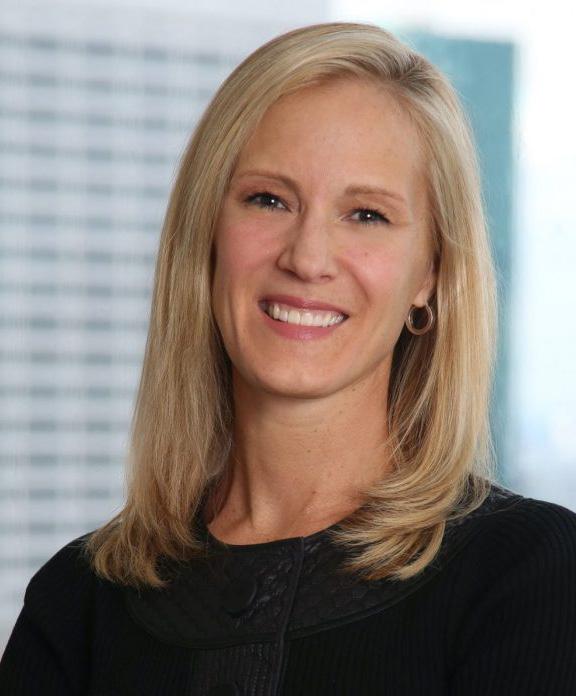

Walmart
As Walmart’s CMO, White has been pivotal in the company’s e-commerce growth and digital transformation. His innovative approach to social commerce, including original content and interactive shopping experiences, continues to redefine retail marketing.

L’Oréal
As Chief Digital and Marketing Officer at L’Oréal, Asmita Dubey oversees marketing for 37 global brands. She has embraced the future of beauty through digital transformation and innovative business models, including social commerce and data-driven marketing.

Apple
As Apple’s SVP of Worldwide Marketing, Greg Joswiak’s influence stretches across its product lineup, including iPhones and the Apple Vision Pro. His marketing approach maintains Apple’s reputation as a cultural icon while navigating shifts in AI and sustainability.
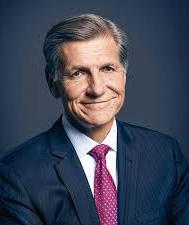
P&G
Pritchard, as CMO of Procter & Gamble, is a marketing veteran known for driving growth through purpose-driven brand strategies. His leadership has helped P&G embrace social responsibility while enhancing the impact of its marketing across global markets.
AB InBev

Marcondes, as Global CMO of AB InBev, leads marketing for the world’s largest brewer. His focus on purpose-driven branding has strengthened AB InBev’s global influence, including sustainability campaigns across their portfolio.
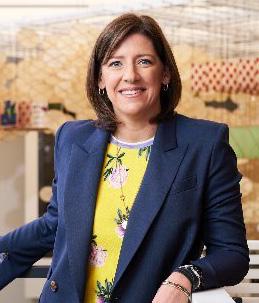
McDonald’s
As McDonald’s Global CMO, Morgan Flatley has been key in driving digital transformation and customer engagement. Her work focuses on creating personalized experiences, using data and technology to enhance the global fast-food brand’s marketing strategies.
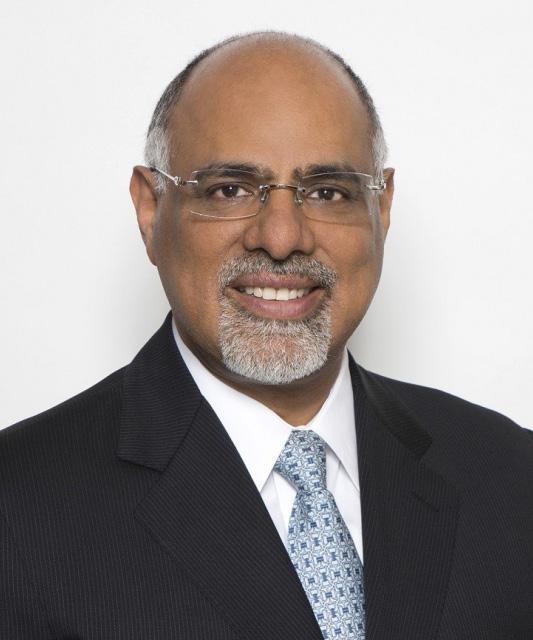
Mastercard
Mastercard’s CMO Raja Rajamannar is renowned for his pioneering work in multi-sensory marketing. His focus on creating consumer experiences beyond traditional advertising has kept Mastercard at the forefront of financial services marketing.

These CMOs come from diverse industries, ranging from technology to consumer goods, and their work impacts millions globally. Their strategies focus on more than just selling products— they are building lasting relationships with consumers and driving the future of their industries. With a combination of data-driven insights, digital prowess, and cultural relevance, these marketing leaders are not only enhancing their companies’ bottom lines but also influencing global marketing practices.

The credentials of SAP speak for themselves:
€31 billion in total revenue (2023); The number one software company in the Dow Jones
Sustainability Index for 16 years; And over 280 million subscribers to its cloud user base.
However, one of the most impressive milestones for the software firm is its transition from an “on-premise based solution company to a Cloud company”, highlighted Mike Wade, EMEA Leader - Digital Supply Chain Customer Advisory at SAP.
But why is the enterprise application software company, which was established in 1972, garnering such success from its customers?
Underpinning its pivot into a fully cloud based business, SAP has a clear understanding of the
impact digital technologies have and will have in redefining traditional supply chain management.
Its key focus now is to support and enable its customers in moving beyond what Mike described as the “foundational layer of a digital supply chain”, into a realm where a business can empower its people through autonomous supply chains.
“By definition, autonomous supply chains enable self-governing decision making while reducing manual intervention. This truly empowers the people who run the supply chain,” explained Mike. “So, over time, digitalisation is enabling the people who run supply chains to do their job even better and with more data insights,” he said.

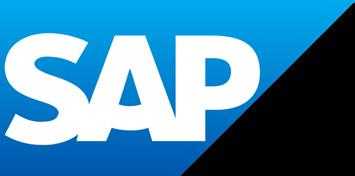
PROJECT DIRECTED BY:
JESS COLLINS
ARTICLE WRITTEN BY:
LAURA WATLING

Mike believes that one of the key reasons customers choose SAP to digitally transform their supply chain, is because its offering has the broadest process coverage across the supply chain.
SAP’s Design to Operate (D2O) portfolio is based on five core pillars: Design; Manufacture; Deliver; Operate; Plan; all enabling a best of suite capability.
“Design for us is where the supply chain begins,” said Mike, “This is the world of new product introduction and development - the ideation of a new product through to launching it into the market. We enable our customers to manage the development and launch of new products, shortening the time to market, which offers a real competitive advantage for most organisations today,”.
In the Manufacture pillar, the solutions across multiple forms of manufacturing types, gives customers crucial visibility for both process manufacturing and discrete manufacturing.
“D2O enables efficient and effective manufacturing operations so that manufacturing companies and organisations can deliver the expected plan,” continued Mike.
Deliver, the world of Logistics, Mike highlighted, has become more visible across the world, after the challenges faced during the Covid pandemic and the socio-political landscape of the last five years.
“People who don’t work in supply chains learned a lot about the word logistics over that period,” he added.
SAP’s D2O solution enables companies in both simple and complex warehouse, and fulfilment and distribution operations to embrace the “network of networks” for global logistics freight operations and visibility.
“This is really the area where I’ve seen many, many customers who digitally innovated through the foundation layer moving up to the autonomous layer in
recent years,” Mike explained.
SAP’s Operate solutions for asset operations and maintenance enables customers to get a better return on the investments made in physical assets.
“Take oil and gas or utility companies, for example. They often invest billions in their equipment and facilities. If they can improve the return on that investment, it’s a huge advantage for them,” he added. This also involves managing maintenance operations —both inside customer’s facilities and for assets that are spread out across different locations.
“Our solution enables field maintenance as part of this asset operations and maintenance process,” Mike continued.
SAP’s D2O Plan solutions also supports its customers in supply chain planning across all time dimensions, in what Mike described as the “central nervous system of any supply chain”.
The software helps SAP’s customers to forecast accuracy, inventory optimisation, and reductions, and reduce working capital, ultimately building risk resilience.
SAP’s best of suite approach enables a fully integrated capability across all the five D2O pillars, into SAP’s core Enterprise Resource Planning (ERP) systems.
“Our customers know how important the native integration with our SAP core ERP software is. This data integrity across the Supply Chain is crucial, and only SAP can deliver this across that portfolio,” added Mike.
The D2O solutions have supported worldwide clients such as Equate Petroleum, Coca Cola Europacific Partners, and Twinings to drive business outcomes via digital transformation.
“In addition, our customers know that we consider it crucial to invest significantly into our solution roadmap and development. We are continually evolving our solution offerings with new functionality and new capability,” Mike said.
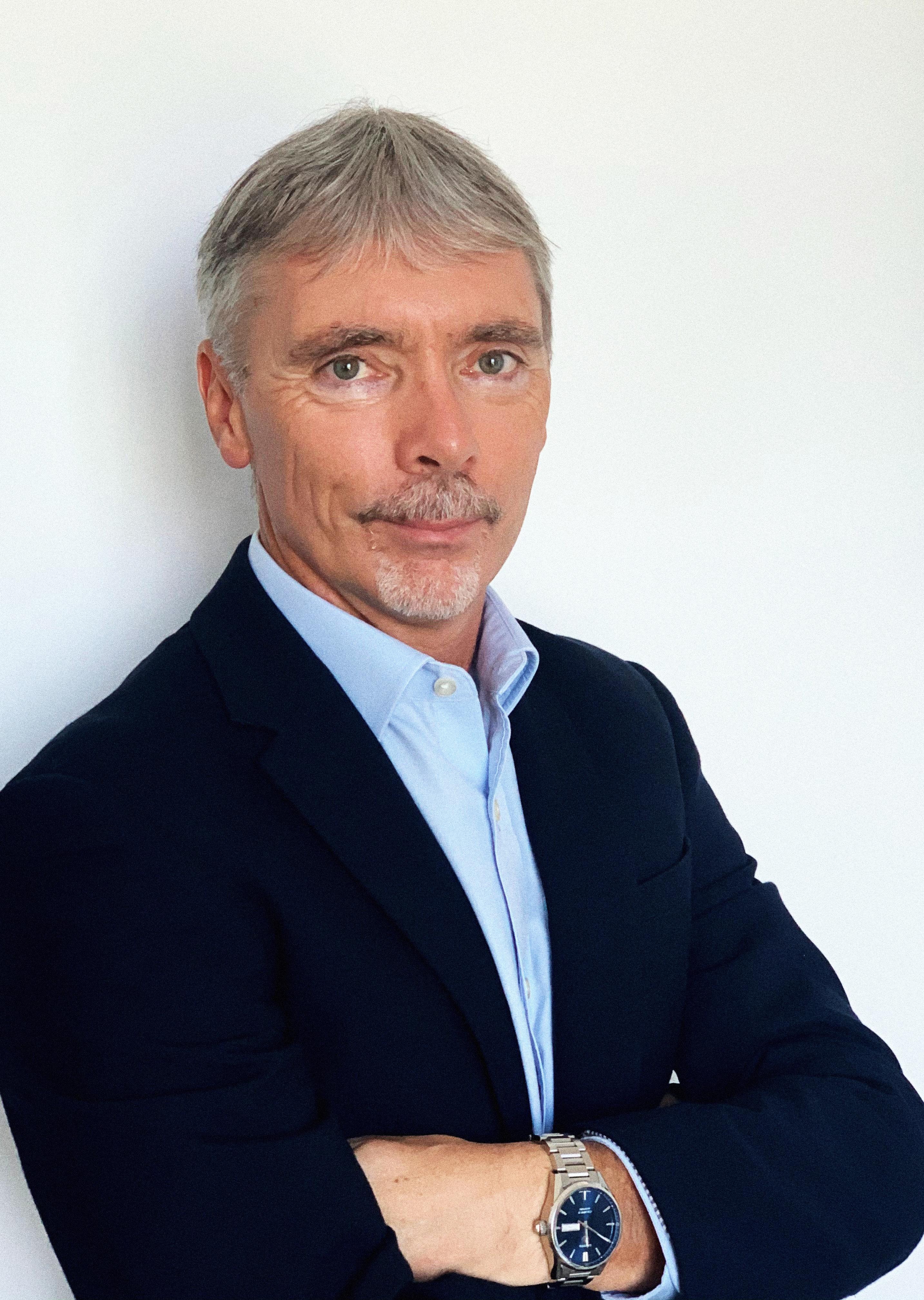
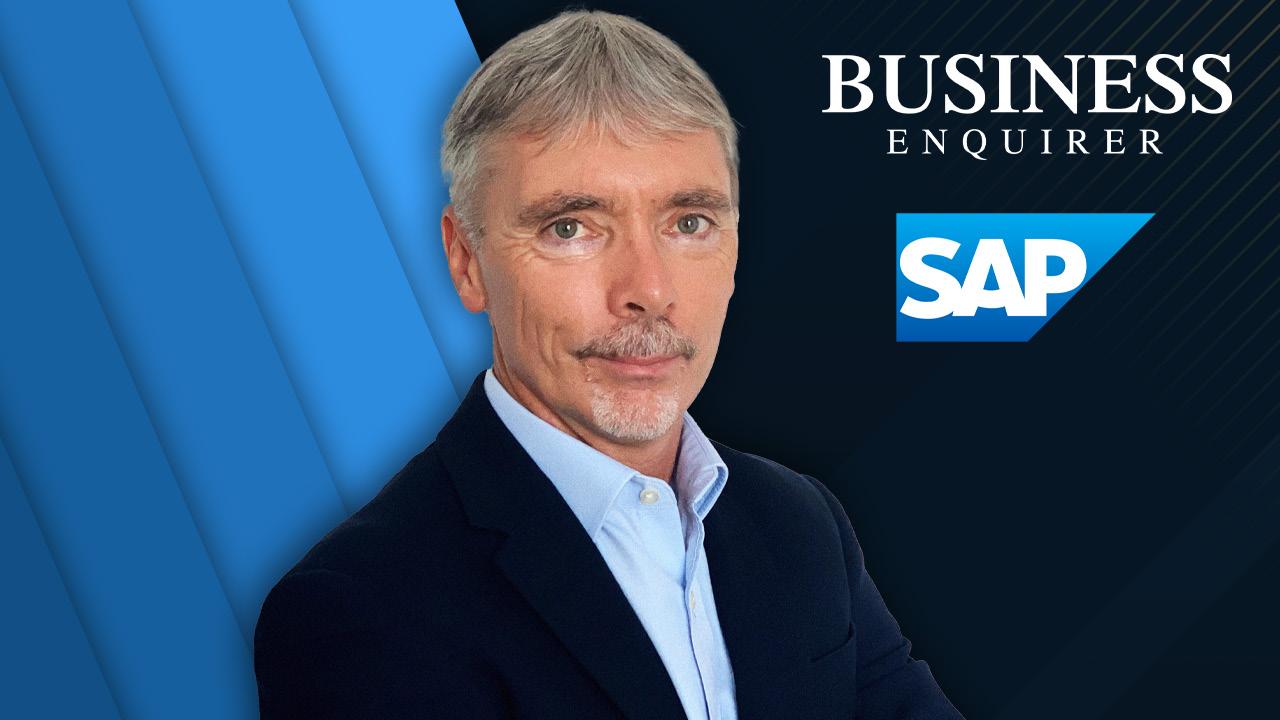


Can you describe your current role at SAP and the key responsibilities you manage?
As solution advisor for the DESIGN pillar of SAP Digital Supply Chain solutions, I support customers and partners and help them understand the benefits of SAP Product Lifecycle Management and its associated best practices
How do you ensure that the digital solutions you implement align with the overall strategic goals of the companies you work with?
Having a competitive and flexible portfolio of products is a key factor of resilience for our customers. Thanks to SAP digital chain solutions, our customers can take quick steps to react to market or supply chain disruption and adapt the development of their offering accordingly. Also the integration to other processes ensure that the changes are made available at the right time for production start.
How do you see the role of digital transformation in the supply chain evolving in the next few years?
Digital transformation is key for realizing the digital thread mentioned before. Connecting people processes and data is the base step to aim for. When it has been realized, scenarios like automation or AI can then become effective.
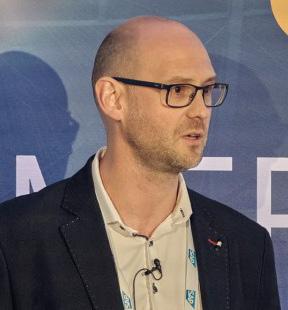
Can you describe your current role at SAP and the key responsibilities you manage?
I am responsible for the go to market and business development function for the logistics portfolio across EMEA
What are some of the biggest challenges you face in your role when it comes to implementing digital solutions for the supply chain?
One of the biggest challenges when looking to drive transformational change across a supply chain is viewing the operation holistically. When businesses seek to optimize operations and performance in a single business function such as planning or logistics it runs the risk of building bigger silo’s which have the effect of reducing performance across the wider business. Businesses need to look at the endto-end operations and consider the supply chain as a single entity rather
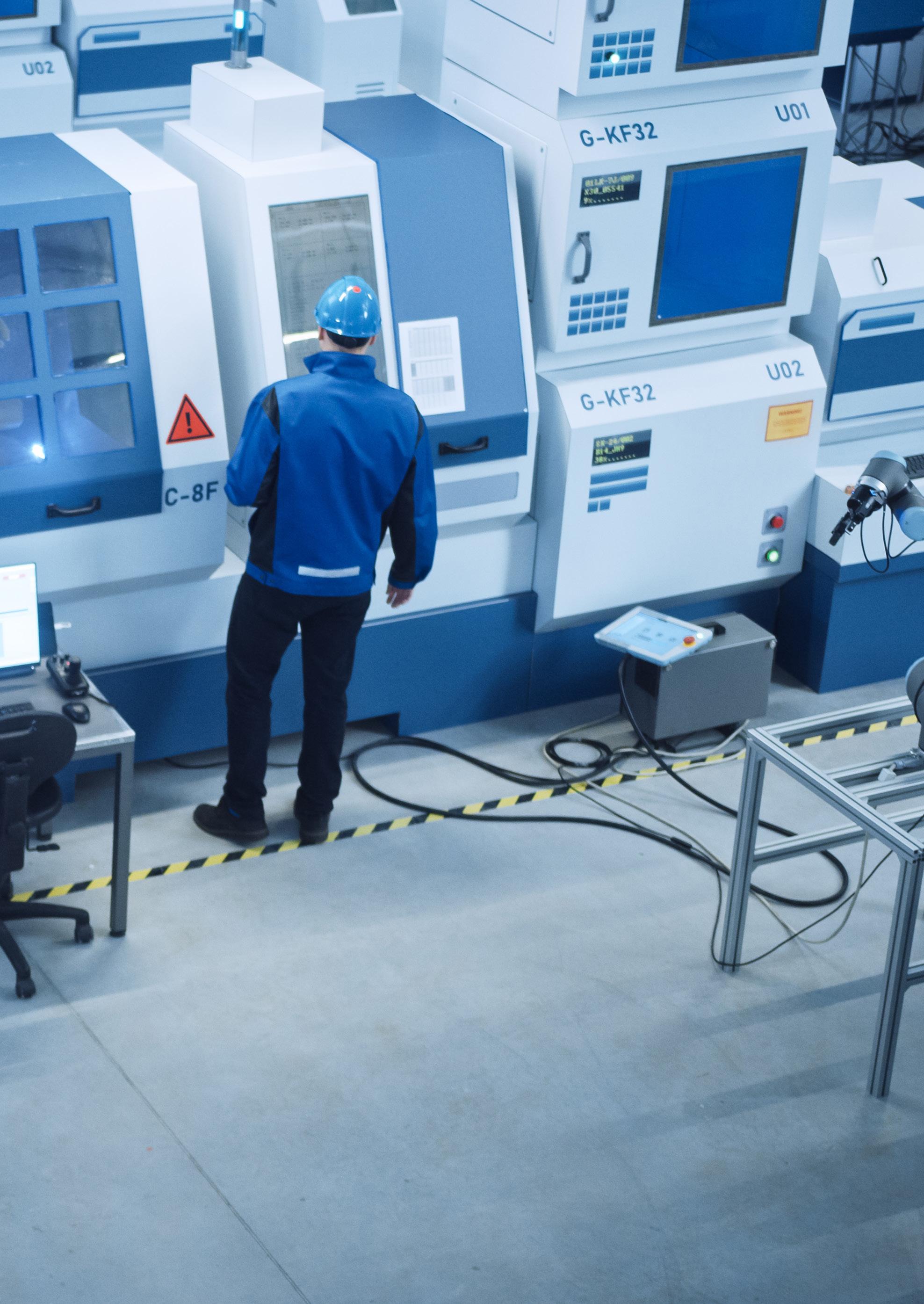
than one made up of a number of discrete functions. Whilst feature/ function are key considerations when undertaking tool selection a much more important factor is creating interoperability across business functions within the supply chain to enable end-toend optimization and improved performance.
Businesses also need to engage end users of solutions in the selection and design processsupply chain is an area where tacit knowledge still plays a significant role in managing the operation, the ability to capture this during the design phase - and then systemize this knowledge in terms of the business process ensures a far higher degree of adoption and therefore improved business outcomes.
How does SAP support companies in their journey towards a fully digitized supply chain?
SAP supports this journey by creating a single digital thread of product information across the lifecycle from design through manufacturing, planning, logistics and asset maintenance and service with integration to the financial and business information within the ERP system. Furthermore, the ability
to extend collaboration and control beyond the 4 walls of the enterprise with business networks allows the organization to make better decisions, across a broader stakeholder group, with improved information more quickly to improve business outcomes.
How does SAP approach sustainability within supply chain digitization, and what role do you play in that?
The extended supply chain is the area where organizations can make the largest sustainability impact. This starts with product design to ensure that sustainability in terms of the materials used, and their sourcing is done in a way which minimizes environmental impact - and here the ability to collaborate with partners and extended design teams is critical.
The design process also need to take account for how the product can be manufactured in a way which minimizes waste and manufacturing planning, scheduling and execution are optimized to limit the consumption of energy.
Planning plays a critical role in ensuring that demand forecasts are as accurate as possible to avoid overstocking which can
lead to write off’s and product obsolescence. The supply plan needs to ensure it can meet the forecasted demand without resorting to unnecessary modal shifts which have a higher carbon footprint. Accurate inventory planning and optimization helps organizations right-size their inventory position, limiting the proliferation of warehouse building which can impact on the green belt.
Logistics obviously has a huge impact on carbon emissions and should be managed in way which favors lower carbon modalities such as rail as far as possible. Vehicle fill rates and route planning should be optimized to mitigate the number of trucks on the road and empty running reduced as far as possible be utilizing collaborative networks to identify backhaul opportunities. Visibility into supply chain disruption is critical in identifying problems quickly and avoiding unnecessary expedited shipments.
Finally undertaking effective service and maintenance processes for operational assets ensures that they are more energy efficient and have an extended operating lifespan reducing the need for replacement.


Can you describe your current role at SAP and the key responsibilities you manage?
As the Business Development Director at SAP for Digital Supply Chain solutions, with a focus on Sustainability and Artificial Intelligence, my role centers around helping organisations leverage cutting-edge technologies to build smarter, more sustainable supply chains.
I work closely with businesses across industries to understand their evolving needs, particularly around efficiency, resilience, and sustainability. By incorporating AI into supply chain processes, companies can unlock significant opportunities for automation, predictive insights, and optimisation, allowing them to make more data-driven, agile decisions. In parallel, I focus on embedding sustainability throughout the supply chain, from responsible sourcing and production to reducing carbon footprints and enhancing transparency for greener operations.
My key responsibility is to demonstrate how the combination of AI and sustainable practices can enable companies to not only drive operational efficiencies but also meet
their environmental goals and regulatory requirements. This involves advising C-level executives on digital transformation strategies, building strong partner ecosystems, and showcasing the real-world impact of intelligent, sustainable supply chain solutions. The aim is to help companies navigate the complexities of today’s market while preparing for future challenges, ensuring long-term success through technology and sustainability integration.
What key technologies do you believe are driving the digitization of supply chains today?
Key technologies driving the digitalisation of supply chains today include Artificial Intelligence (AI) and machine learning for predictive analytics and automation, and the Internet of Things (IoT), which enables real-time visibility of assets. Cloud computing facilitates global collaboration and data sharing, while blockchain enhances traceability and trust through secure, transparent records. Advanced analytics and big data provide actionable insights, optimising supply chain performance, while digital twins allow for virtual simulations to improve efficiency and adaptability. Additionally, automation and robotics streamline processes, and sustainabilityfocused technologies help companies track and reduce their environmental impact. Together, these technologies enable smarter, more agile, and sustainable supply chains.
In addition to these key technologies, having an integrated supply chain is critical for creating
risk-resilient and sustainable operations. Integration ensures that data flows seamlessly across all supply chain functions—from procurement to logistics— enabling real-time visibility and collaboration between stakeholders. This end-to-end connectivity allows businesses to anticipate and respond to disruptions more effectively, minimising risks such as supply shortages or unexpected delays.
By integrating sustainability metrics into the supply chain, companies can better track and reduce their environmental footprint, ensuring compliance with regulations and meeting consumer demand for responsible business practices. Ultimately, a well-integrated supply chain, powered by digital technologies, enhances agility, transparency, and sustainability, positioning businesses to thrive in an increasingly complex and uncertain global environment.
How does SAP approach sustainability within supply chain digitization, and what role do you play in that?
SAP approaches sustainability within supply chain digitization by integrating sustainability into its core business processes. SAP solutions help businesses track and manage environmental, social, and governance (ESG) metrics throughout their supply chains, providing tools for datadriven decision-making.
SAP’s analytics capabilities enable businesses to identify sustainability risks and opportunities, making informed decisions to reduce their environmental impact. Additionally, SAP supports circular economy initiatives by helping businesses implement models

like product reuse, recycling, and remanufacturing.
SAP collaborates with industry experts and non-profit organizations to develop innovative solutions and promote sustainable practices. Furthermore, SAP provides training and resources to help businesses and their employees understand the importance of sustainability and how to implement sustainable practices.
SAP’s role in promoting sustainability within supply chain digitization includes developing innovative solutions that help businesses reduce their environmental footprint and improve their social and governance practices. SAP offers a suite of integrated solutions that address the entire supply chain, enabling businesses to manage sustainability across their operations.
SAP also works with industry organizations to develop and promote sustainability standards and certifications. Additionally, SAP’s analytics capabilities help businesses track and analyze key sustainability metrics, empowering them to make informed decisions and drive positive change.
SAP fosters a culture of sustainability by encouraging its employees and partners to adopt sustainable practices and contribute to a more sustainable future. By integrating sustainability into its solutions and fostering a culture of sustainability, SAP plays a crucial role in helping businesses achieve their sustainability goals and contribute to a more sustainable world.

BUSINESS DEVELOPMENT MANAGEMENTASSETS & SERVICE MANAGEMENT
Can you describe your current role at SAP and the key responsibilities you manage?
I drive business development activities in the EMEA region, positioning the SAP Asset Management Solutions strategy and assisting customers in embracing digital transformation initiatives. Collaborating closely with marketing to create campaigns that raise market awareness of SAP Asset Management Strategy & Solution Portfolio. Deliver internal and external enablement sessions, support the creation of a partner ecosystem, and function as a trusted advisor during sales cycles.
How has your role evolved since you started at SAP, particularly in the context of supply chain management?
The evolution of sales roles within the digital supply chain technological area, especially in enterprise solutions like SAP, reflects broader changes in how technology is driving and transforming supply chain processes. SAP and similar platforms are critical in providing end-to-end visibility, automation, and integration in supply chain management. As these systems have evolved, so too have the sales roles associated with them.
What emerging trends in supply chain management are you most excited about?
Artificial Intelligence (AI) and Machine Learning (ML)
Predictive analytics: AI and ML are revolutionizing demand forecasting by providing real-time insights based on historical data, market trends, and external factors like weather and geopolitical events. This helps companies optimize inventory, reduce waste, and anticipate disruptions.
Automation in decisionmaking: AI-driven algorithms are automating decisionmaking in areas like procurement, logistics, and inventory management. This leads to faster and more accurate responses to supply chain challenges, reducing the need for manual intervention

BUSINESS DEVELOPMENT MANAGERMANUFACTURING AND I4.0 AT SAP
Can you describe your current role at SAP and the key responsibilities you manage?
Supporting our Industrial Customers to initiate their digital transformation of manufacturing operations and Industry 4.0 initiatives to deliver operational excellence. Mainly focusing on Domain Advisory, selecting the best solution fit to address business requirements for the next 10 - 15years. Helping Partners to prioritize their investments and co-innovation strategy with SAP and our Customers and bring them up to speed with latest SAP Innovation. Last but not least, working on new business opportunities to leverage SAP Innovations and best of suite.
How has your role evolved since you started at SAP, particularly in the context of supply chain management?
I’ve been involved in SAP projects and enterprise transformations since 2010. Starting as Supply Chain Consultant in various industries, I’ve joined SAP in 2020 to bring manufacturing Pre Sales skills in the French Market Unit. Manufacturing is at the heart of the
supplychain,nogoodsproduced,no deliverytotheendcustomers.Inthe currentglobalisationoursocietyis dealingwith,Manufacturingresilience andAgilitytriggeredahighinterest andI’vethenjoinedourRegionalEMEA Team(Europe,Africa,MiddleEast)to supportthegrowthoftheregionand ourlocalMarketUnits.
What are some of the biggest challenges you face in your role when it comes to implementing digital solutions for the supply chain?
Veryoften,digitizationbecomes anITTopicand/orpre-requisitein thedifferentorganizations.What’s importanttoconsider,ifwedon’tget theBusinessbuy-in,whateverthe solutionis,thereisahighprobability tofailandnotgetusersAdaption.We aredeliveringsolutionsandbestin classapplicationstosupportbusiness transformationandnotITconsideration. ITisevolvingatveryhighspeed,ifyou considerManufacturingOperations asasystemitself,thissystemdoesn’t really“like”changes.Howdowebring innovationsathighspeedanddo notdisruptthesystem?Longterm companystrategyiskeytodelivering thepromise,I’musedtosayingthink big,startsmallandthechallengeis alwaystocapitalizeonquickwinsto evaluatethefastROIandmitigate therisks,combinedwithalongterm visiontoachievethegoals.Obviously, ITdepartmentscan’tsolveitby themselves.
How does SAP stay ahead of the curve when it comes to innovation in supply chain digitization?
TalkingaboutManufacturing Operationsinthecloud,SAPisa pioneerifnotthefirsttooffera ManufacturingPlatformtosupport severalindustriesbringingbest practices,fullyintegratedprocesses suchasplanning,maintenance andlogistics,withamicroservice approach.



At Delaware, a global consultancy with a presence in over 20 countries, we're transforming how businesses operate. We partner with industry leading technology providers, including SAP and Microsoft, to deliver cutting-edge solutions that empower businesses to achieve their missioncritical priorities.
We don't just implement tech; we become your innovation partner, helping you solve your most pressing challenges.
Prioritising a practical approach, we believe technology should complement common sense. We leverage data to guide you towards optimal next steps, ensuring technology serves as a tool, not a replacement, for sound decision-making.
We understand that the supply chain landscape is ever evolving. Hyper-personalisation is a key trend, with customers today expecting tailored
products and services which impact every step of the supply chain. What’s more, in the face of geopolitical uncertainties, disruptions can have a ripple effect, forcing companies to adapt and reroute entire supply chains. That’s why we help you develop the agility needed to meet these rising demands, with a solution designed for your specific business needs.
We also caution against neglecting internal vulnerabilities, particularly in asset-intensive industries like energy and manufacturing, where spares and maintenance inventory are crucial for keeping operations running smoothly. These internal supply chains are often overlooked when considering potential disruptions.
By combining cutting-edge technology with a practical understanding of your business needs, we empower you to navigate the complexities of today's supply chain landscape. With a focus on innovation and resilience, we're here to help you not just survive, but thrive in an ever-changing world.


Whilst SAP’s D2O solution’s popularity is a clear “no-brainer”, Mike also shared the importance of its partner ecosystem in its value proposition to clients.
“Our ecosystem of partners are hugely important for SAP in order for us to be successful and our customers to be successful,” he explained. “The ecosystem allows us to scale across industries and geographies. We have a different range of ecosystem partners, some focused on implementation and some who are reselling and implementing our technology which helps to give our customers valuable choice,”.
An SAP Platinum partner with entities in the UK, Belgium, Netherlands and France, Delaware helps SAP’s customers to understand how best to adopt and consume its digital supply chain solutions.
“Adoption and consumption of our solutions is absolutely crucial to our customer’s growth, our growth, and our technology’s growth,” shared Mike.
Additionally, Delaware is an innovator which has partnered with SAP in the codevelopment of its digital manufacturing solution for the mills industry, delivering SAP’s technology with a specific functionality for the sector.
“This is a great example of how our partner ecosystem can help with things like solution development, which has played an important role in our success”.
Considering the future of digital supply chain management, Mike foresees the outlook to be “predictably unpredictable”.
As one way of helping our customers overcome this unpredictability, SAP has partnered with Everstream to develop additional risk resilience.
Everstream enables SAP to incorporate crucial predictive risk insights into the
supply chain planning processes, in addition to traditional demand and supply signals such as customer activity, supply, and demand signals. This helps to drive insight and efficiency for customers, increasing the ability for businesses to mitigate risk to its supply chain and develop that risk resiliency required.
In Mike’s conversation with Business Enquirer he noted how younger generations moving into the realm of supply chain management is supporting the adoption of digitalised supply chains.
It is clear that those who choose not to adopt technology into their business’ supply chain will simply be left behind.
“When you consider the impact that technology can have in supply chain practitioners’ worlds, it will mean less manual intervention. It will drive the need for new skills and an understanding of how to set up supply chains, which may be different from the traditional way that they have been set up, governed, and operated. I’m seeing the technology actually driving the change in people, driving skills requirements, and driving how businesses model and set up those supply chains,” Mike explained.
Mike made it clear that people will always remain valuable in the world of supply chain, and whilst technology adoption is becoming crucial to the transformation of a business, he highlighted that “it doesn’t mean anything unless we have the right team to bring that to life for our customers”.
“I believe here at SAP in the Digital Supply Chain business, we have the best team in the industry. They’re passionate about helping our customers drive the maximum business benefit from SAP solutions. I have confidence and I know we have the best people in the industry in front of our customers,” he shared.
www.sap.com


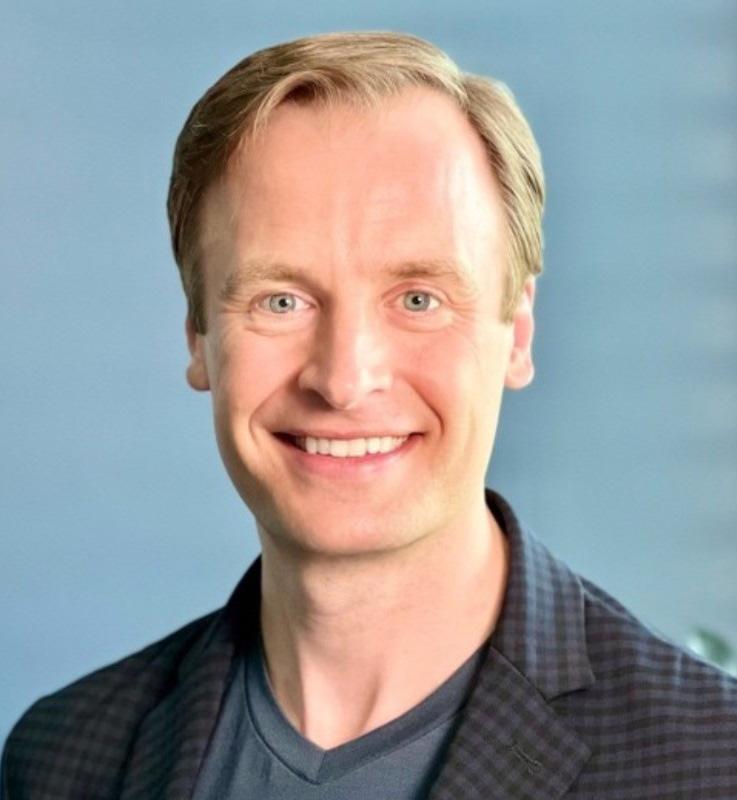
Can you describe your current role at SAP and the key responsibilities you manage?
Supporting customers across Europe, Middle East and Africa (EMEA) to accelerate their end-to-end digital supply chain transformations. Advise clients on the impact of integrated planning processes, connecting demand chains to networked supply chains in real-time. Finding the best starting points to help them rapidly capitalise on their main opportunity and business value. Follow the purpose of helping the world run better with digital supply chains.
How does SAP support companies in their journey towards a fully digitized supply chain?
SAP’s value for our customers is a Suitefirst and AI-first networked supply chain. Scaling an agile and adaptive network to meet global dynamic demands can be faster with our end-to-end digital processes and data.
Our fully integrated supply chain suite means our customers have real-time visibility of risks and opportunities, with financialised decision-making support to contextualise and act on these drivers to deliver profitable order promising.
AI in our end-to-end supply chain and enterprise platform has delivered big
impacts for our customers in the last years. Many companies are ready to take advantage of Business AI. SAP’s integrated enterprise and network data means that companies can take advantage of their historical data as well as future plans and network constraints to guide the supply chain faster and more profitably with AI.
What do you think will be the next big disruptor in the supply chain industry?
AI technology is already here, and as explained this will increasingly transform supply chains throughout the design to operate processes, having already seen the impact AI in our supply chain planning platform SAP IBP has delivered in the last few years. I believe that quantum computing will also have a disruptive impact on supply chain optimisation, helping companies move to more adaptive and autonomous planning and operations due to the high accuracy and speed of hybrid algorithms across global networks. Sustainability will have a larger disruptive impact than people believe. It has already had an impact on packaging and plastics, and as regulation increases, there will likely be more disruptive changes in production and logistics process as climate impact is monitored more closely. Impacts could include electrification, automation, and robotics; for example self-driving fleets of electric trucks and drones.
Finally, I believe in people as being a pivotal and positive disruptive force for the supply chain industry. Empowering your talented people with deep domain expertise and global experience and the right change management and technologies, can help them have more time to innovate new business models, products, and transform the supply chain industry.

OKPMG PROJECT DIRECTED BY: JESS COLLINS ARTICLE WRITTEN BY: LAURA WATLING

ver the next three years and beyond, governments across the world will increase the legislation around sustainability reporting, impacting a vast number of businesses.
Jerwin Tholen, Partner ESG Advisory at KPMG (one of the globe’s most experienced and expansive audit, tax, and advisory firms) believes that this demand will not only increase demand for ESG reporting and assurance, but will drive the demand for advisory services, too.
With 150 years in business, and offering sustainability services since 1992, KPMG is well equipped to support businesses needing to meet legislation, whilst pioneering and innovating its service offering.
“My vision for sustainability at KPMG is that we create our biggest impact through the professional services we
provide,” shared Jerwin, who joined the firm in 2002 and now leads on ESG strategy services in the Netherlands.
“We help clients shape and execute their ESG strategy, support in CSRD reporting, and our subject matter experts work on the assurance of sustainability reports.
Next to that ESG runs as a watermark through our entire advisory portfolio” to manage risk and drive top and bottom line growth”, Jerwin adds.
Whilst the business focus remains on how KPMG can better its clients operations and reporting, KPMG also drive sustainability from within - walking the walk, and talking the talk, with a focus on Governance, People, Planet and Prosperity.
“Just as our clients, we conduct Double Materiality Analysis, apply international reporting standards like the CSRD in Europe, and use ‘supplier codes of conduct’ for strong ESG Governance,”

explained Jerwin, “We recognise people are our biggest asset and we seriously invest in upskilling our people in digital capabilities and in ESG topics. Diversity, Equity & Inclusion is another key pillar in our strategy,”.
Additionally, KPMG is on a mission to net zero as part of its ‘Planet’ pillar. In 2023 the business reduced its emissions globally by 22% compared to 2019, and reached 81% renewable energy consumption.
“We are investing into nature based solutions and have published our first global Climate Risk Report aligned with the Taskforce on Climate-related Financial Disclosures (TCFD). In addition to our own climate risk resilience the report focuses on how we support our clients with moving to a low-carbon net zero economy,” added Jerwin.
Finally, under its prosperity pillar, KPMG has helped economically empower 1
million disadvantaged young people.
What is clear when speaking with Jerwin at KPMG, is the importance of aligning its work with the true needs of its clients, ensuring clients have an opportunity to grow from initiatives implemented.
“Typically, three types of transformation take place as a result of the CSRD reporting requirements and Double Materiality Assessment,” he says. A reporting transformation where the focus quickly shifts from “what to report” to “how to report” at lower cost over time and with higher accuracy. Secondly, the sustainable business transformation to reduce adverse impacts on people and environment, manage risks related to climate change, human rights and biodiversity loss, and drive business opportunities. Business opportunities surface in the shape of new products, circular business models, lower energy cost or a competitive advantage.
A global alliance to help organisations transform their sustainability reporting
Workiva, the world’s leading cloud platform for transparent reporting, and KPMG have a strong global alliance, supporting organisations around the world to transform their approach to integrated reporting.
Founded in 2008, the Workiva Platform is trusted by over 6,000 companies around the world, including over 85% of the Fortune 500®.
Over the past five years the Workiva Platform combined with KPMG’s experienced advisory services has provided organisations with a solution to help optimise and increase collaboration between sustainability, finance and risk teams.
By connecting data wherever it’s stored and automating time-intensive tasks, the Workiva platform helps companies to enhance the quality of their reports, save time and reduce the risk of human error. “Our platform enables teams in finance, compliance, audit, sustainability and risk to collaborate with control and accountability while producing compliant and beautifully designed reports and presentations,” explained Masa Pastralo, Workiva’s Director of Partnerships & Alliances.
From a sustainability perspective, Workiva empowers businesses to meet evolving sustainability demands by unifying financial reporting, sustainability, governance, risk and compliance within one platform.
The SaaS company recently launched Workiva Carbon, a comprehensive solution that enables businesses to collect, manage and report greenhouse gas emissions data across their entire value chain.
By integrating real-time data from various sources and automating carbon calculations, businesses can align their sustainability initiatives with both voluntary and mandated reporting frameworks, positioning them to meet regulatory demands and stakeholder expectations.
“There’s a lot happening within the Workiva and KPMG alliance, and we are very excited to continue to help businesses meet their reporting needs, said Masa, “In just a couple of weeks we’ll be at Amplify EMEA in Amsterdam together, an event that unites finance, sustainability and risk leaders to discuss how to create sustainable value for organisations. It’s a must-attend event for professionals looking to further their careers and understand some of the biggest challenges facing businesses today”.
www.workiva.com

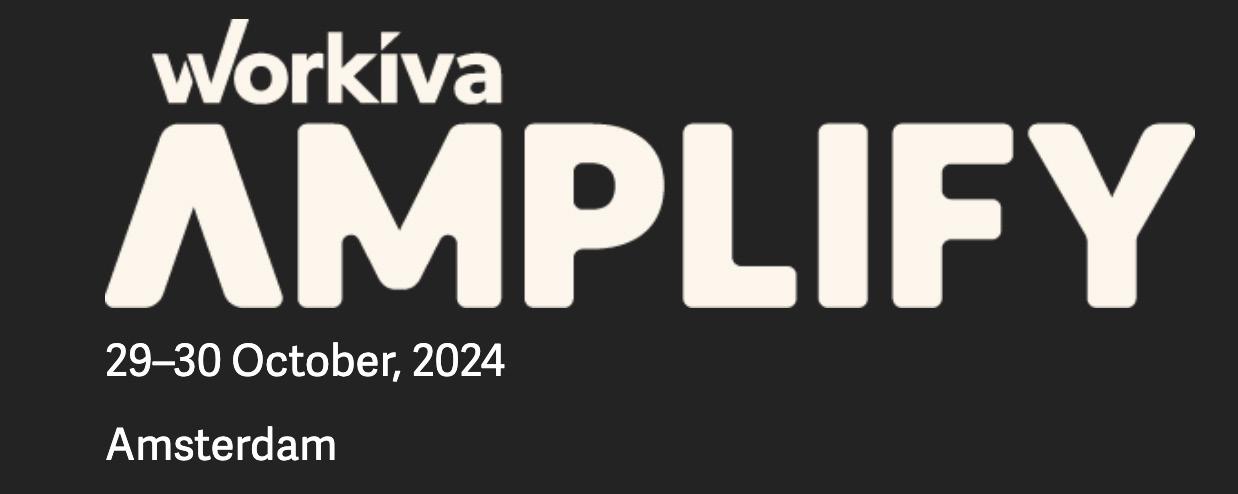


The way you report, and the way you work, have changed. Regulations like the CSRD and ISSB mean that you need to share verified information, consider external impact and deliver connected insights across finance, ESG and risk.
At Amplify—the conference for finance, accounting, compliance and ESG professionals—we will help you tackle change with confidence so you can be ready for anything.
Over two days, experts will discuss how regulations are creating opportunities for sustainable value creation, the critical importance of strengthening business resilience and how Gen AI and other new technologies are opening up innovative ways of working.
Cutting-edge discussion, actionable takeaways, invaluable peer networking and the opportunity to earn 10 CPE credits across 20+ sessions: get ready for anything at Amplify.
osapiens is the ESG platform that helps companies implement ESG requirements in a fast, automated, and secure way. It ensures compliance with all regulations, reduces risk, and automates processes to enhance transparency and efficiency. Gain actionable insights and make a real impact.

Companies are under increasing pressure to meet ESG requirements like CSRD and EUDR. osapiens, the all-in-one ESG platform, provides an automated solution to ensure supply chain transparency and simplify ESG compliance.
Effortlessly achieve regulatory goals and build a sustainable future for your business.
The osapiens HUB: Achieve ESG compliance easily and quickly, and turn your data into a



Collaborating with KPMG on the delivery of ESG compliance is osapiens , trusted by more than 1,500 customers across the globe.
osapiens offers the most comprehensive ESG platform to make an impact, the osapiens HUB. This AI-powered cloud platform enables companies to ensure compliance and transparency across their entire value chain.
With osapiens , companies can manage data collection and risk assessment for all relevant ESG regulations in a single platform. These regulations include the Corporate Sustainability Reporting Directive (CSRD), the Corporate Sustainability Due Diligence Directive (CSDDD), and the Carbon Border Adjustment Mechanism (CBAM).
A significant regulation companies must address is the European Union Deforestation Regulation (EUDR), which impacts businesses processing or trading commodities like livestock, cocoa, palm oil, and wood. By December 30, these companies must demonstrate their supply chains are deforestation-free or face substantial fines.


The osapiens HUB goes beyond compliance by enabling clients to integrate ESG data into their corporate strategies and streamline processes. It simplifies complex regulations like EUDR, which require detailed traceability and due diligence, often exceeding the demands of existing ecocertifications.
Stijn Scheepers, Country Director Benelux, describes osapiens ’ relationship with KPMG as “truly collaborative,” with the partnership poised to grow even stronger in the coming years.

In this relationship, KPMG conducts research to identify its clients’ regulatory needs, while osapiens provides software that assesses risks, recommends mitigations, and automates reporting. The osapiens HUB streamlines due diligence by importing supplier data, prioritizing scrutiny based on risks, and ensuring compliance with regulations such as EUDR.
“The beauty of the osapiens HUB is that we can automate the whole process for our clients. Not only that, but the software is fully scalable to meet increasing legislative demands and support customer growth,” shared Stijn.
Recognizing the value osapiens brings to sustainability, the company recently completed a $120M Series B financing round led by Goldman Sachs, which will accelerate its international expansion and further enhance its technology platform for more resilient and efficient business operations.



Thirdly, the entire approach to data and technology has to change to create visibility across the value chain, facilitate better reporting and drive sustainable change”. KPMG has a role to play in each transformation.
“Aligned with our ambition to help our clients transform to sustainable businesses, we established the ESG Innovation Institute together with the University of Nyenrode,” Jerwin shared.
The Institute has enabled more than 60 C-level clients alongside their KPMG counterparts to undertake three sustainability modules.
“Many of them either had limited exposure to ESG before, were new in their roles as Chief Sustainability Officers or wanted to better understand ESG transformation in their roles in supervisory boards. Meanwhile, the KPMG partners were often new to the topic. This led to a whole new community of people that became confident in driving sustainable growth,” he added.
Whilst Jerwin highlighted that the successful sustainability initiatives he has been involved with at KPMG are countless, one which he is particularly proud of is the CSR risk assessment it has created on behalf of the Netherlands’ Government.
This assessment enables the government to identify highly exposed sectors and their respective international risks related to working conditions, human rights and the environment. This has led to 10 covenants between the government, NGOs and exposed sectors to date.
“We still apply some of the methodologies developed in this project. Especially with the new Corporate Supply Chain Due Diligence Directive (CS DDD) this has become extremely relevant”.
KPMG’s partnership with osapiens , a leader in ESG technology, helps to provide companies with the technology and data to support this due diligence, guiding KPMG’s clients in the risk
assessments, required follow-up and the implementation of the tools.
“This leads to more insights into risks, better controls and in the longer run will improve the lives of millions of workers in currently opaque supply chains,” said Jerwin.
The firm’s relationship with osapiens leverages KPMG’s deep expertise in ESG and regulatory matters, combined with osapiens ’ cutting-edge cloudbased AI and automation tools, which are specifically designed to navigate the complexities of the ESG environment.
KPMG and osapiens offer a powerful combination of services that not only support efficient and legally compliant sustainability reporting but also enable organisations to achieve their broader ESG goals.
By integrating the osapiens HUB, a sophisticated cloud technology platform, with KPMG’s vast experience in sustainability, auditing, and consulting, KPMG is helping companies centralizing and manage high-quality ESG data effectively.
“This integration allows for the digitalisation, automation, and analysis of sustainability processes, helping clients to meet emerging ESG obligations with efficiency and accuracy while optimising their overall business processes and increasing supply chain transparency,” explained Jerwin.
Next to working with companies to transform their own business and value chains, the firm works with organisations that do this at scale, such as Cascale. Cascale is a membership organisation in the consumer goods sector with their value chain due diligence tools used globally to create more sustainable supply chains.
The mission of Cascale is to drive collective action toward creating an equitable and restorative consumer goods industry, aiming to achieve this by aligning


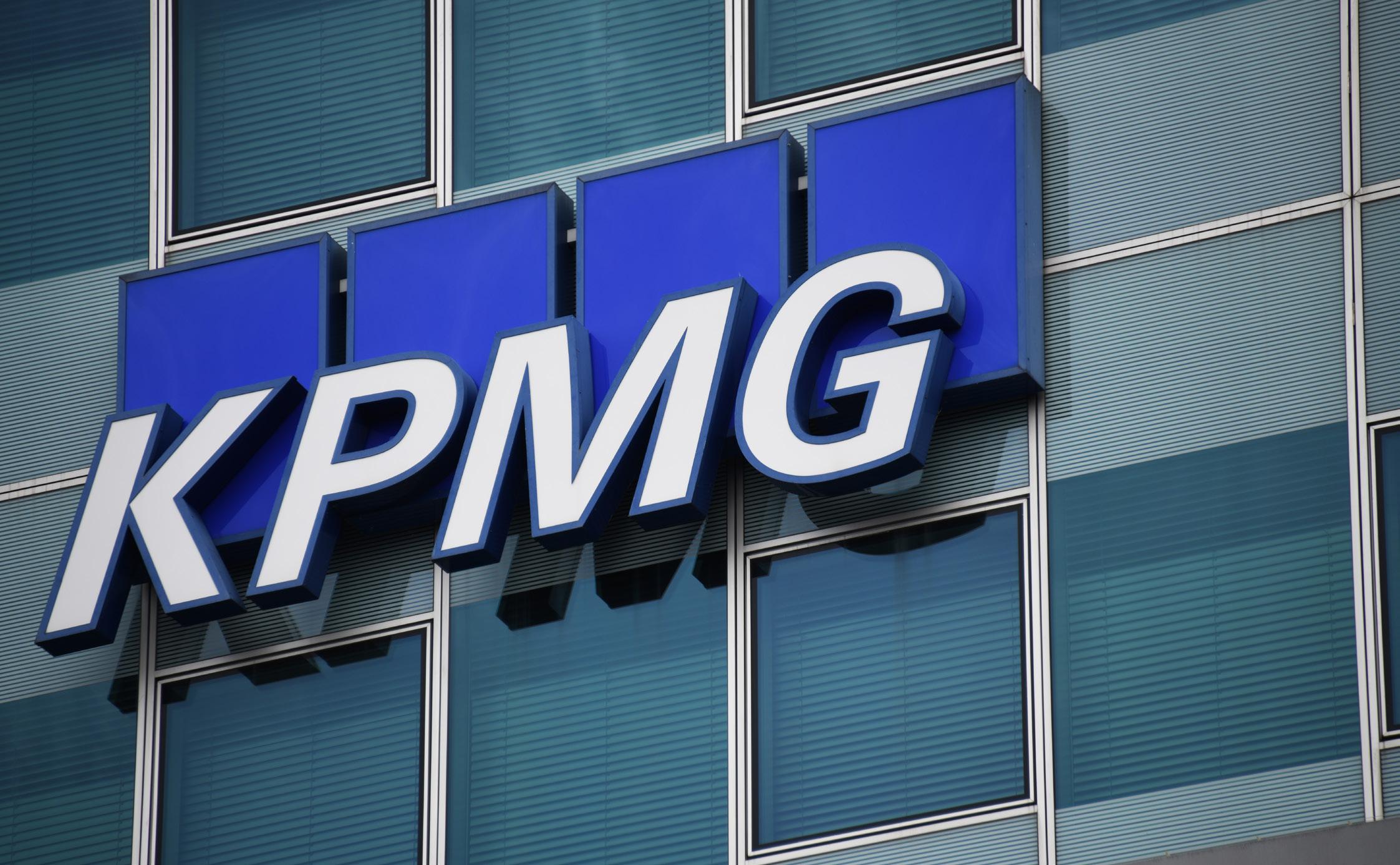
its global community around shared objectives, collaboratively developing and executing solutions, and leading impactful initiatives with strategic partners.
One of its key initiatives is the development of the Higg Index, a comprehensive suite of tools, exclusively available on Worldly, designed for the standardised measurement of sustainability across the value chain. The primary aim of the Higg Index is to empower brands, retailers, and manufacturers with verified data to assess, enhance, and transparently share their environmental and social performance.
“We have not only helped them to review their tools, but also to strengthen the cooperation with other stakeholders and now support them in educating their members on the implications of the CSRD. By implementing this type of project we impact many companies in parallel,” Jerwin shared.
Alongside its work with osapiens and Cascale, KPMG has found that clients are more and more requesting ESG or CSRD
reporting implementations using KPMG’s partner, Workiva.
Faced with the challenges of increasingly comprehensive and complex reporting, Workiva’s reporting platform solution provides auditable and scalable solutions for integrated financial and non-financial reporting, helping organisations to optimise their reporting requirements.
The cloud platform offers new ways of networking and collaboration for a transparent approach. Workiva enables the connection of a wide variety of data sources, which can be transformed and then summarised in a report. By automating data connection and further processing, the reporting process can be simplified and accelerated.
“Our advisory teams have the required functional experience and are very familiar with working directly with Workiva. This offers clients the opportunity to work with a multidisciplinary team that brings a wealth of business practice and technical experience,” said Jerwin.

Cascale is the global nonprofit alliance empowering collaboration to drive equitable and restorative business practices in the consumer goods industry. Formerly known as the Sustainable Apparel Coalition, Cascale owns and develops the Higg Index, which is exclusively available on Worldly, the most comprehensive sustainability data and insights platform.
The leading value chain environmental and social impact measurement methodology, the Higg Index tools assess social and environmental performance across various aspects such as water use, carbon emissions, and labour conditions. There are 40,000 Higg Index users today, and Cascale unites over 300 retailers, brands, manufacturers, governments, academics, and NGO/nonprofit affiliates around the globe through one singular vision: To catalyse impact at scale and give back more than they take to the planet and its people.
For example, the organization’s Decarbonization Program supports the consumer goods industry to work towards emissions reduction by delivering tools and guidance to make achieving science-based decarbonization targets possible. Cascale’s corporate members are required to commit and set Science-Based Targets (SBTs), developed by the Science-Based Targets Initiative, which is a crucial step for companies to take in developing a decarbonization strategy and plan to cut emissions.
Cascale’s mission is to solve the industry’s most urgent and systemic challenges by focusing on the implementation of equitable and restorative business practices that benefit the climate, nature, and communities around the world.
Learn more at www.Cascale.org

Cascale is the global nonprofit alliance empowering collaboration to drive equitable and restorative business practices in the consumer goods industry.
Formerly known as the Sustainable Apparel Coalition (SAC), Cascale owns and develops the Higg Index, which is exclusively available on Worldly, the most comprehensive sustainability data and insights platform.
Cascale unites over 300 retailers, brands, manufacturers, governments, academics, and NGO/nonprofit affiliates around the globe through one singular vision: To catalyze impact at scale and give back more than we take to the planet and its people.




“The advantage of working both with and at a company like KPMG is that you have access to a strong network of colleagues globally and great alliance partners to tackle the complexity of the emerging body sustainability reporting and performance requirements,” Jerwin added.
With the use of AI and machine learning being increasingly integrated into businesses, what does the future look like for sustainability auditing and advisory?
“Wow, this is a field of expertise in itself,” said Jerwin in his conversation with Business Enquirer.
Jerwin highlighted that KPMG has established teams which focus on the application of AI within its clients.
“These teams work together with our sustainability teams to automate and improve the search for relevant sustainability regulations and their applicability for the client or improve the data and analytics processes to find areas for improvement in energy management,” he explained, “Some of our clients use AI to answer the enormous amount of questions they get from customers and stakeholders on their ESG performance,”.
Of course, he highlighted, with the rise of AI there are both challenges and risks, such as data breaches and the risk of discrimination by algorithms. “Next to using AI to improve sustainability, the integrity of AI will become a material sustainability topic by itself for more and more companies,” he said.
www.kpmg.com


As one of South Africa’s largest and most progressive diversified resources companies, Exxaro has continued its upward trajectory in 2024, driving innovation, sustainability, and socio-economic development. Known for its leadership in the mining and energy sectors, Exxaro has also made substantial strides in creating a more sustainable future by integrating cutting-edge technology, strategic partnerships, and a people-focused approach.
In 2024, Exxaro has reinforced its commitment to environmental stewardship and community development, partnering with prominent companies like Ritluka Resources Pty and Modi Mining. Together, they are making a significant impact on the South African mining landscape while contributing to Exxaro's broader goals of sustainability and transformation.
In 2024, Exxaro has reaffirmed its position as a leader in sustainability within the mining industry. The company’s overarching goal of reducing its environmental footprint while continuing to meet the country’s energy and resource needs has seen significant progress. Exxaro has made bold commitments to reducing carbon emissions and transitioning to cleaner energy sources, aiming for carbon neutrality by 2050.
“This year has been one of remarkable progress for Exxaro, not just in terms of operational success but also in our sustainability journey,” said Exxaro CEO Nombasa Tsengwa. “We are focused on ensuring that our growth is inclusive and beneficial to both the environment and the communities where we operate. Through our partnerships with companies like Ritluka Resources and Modi Mining, we’re able to push forward with our goals in an impactful way.”
One of the major milestones of 2024 has been Exxaro’s continued investment in renewable energy projects. The company
EXXARO
PROJECT DIRECTED BY: JAMIE WAITE
has expanded its portfolio in wind and solar energy, building on its past success in establishing clean energy solutions that are set to power South Africa’s future. With ongoing projects across several provinces, Exxaro is helping to alleviate the country’s energy challenges while contributing to global efforts to combat climate change.
Tsengwa added, “Exxaro’s transition into renewable energy is not only about business diversification but also about securing a sustainable future. We are aware of our responsibility to ensure that South Africa’s energy landscape evolves in a way that supports both our economy and our planet.”
A key element of Exxaro’s success in 2024 has been its ability to forge strong partnerships that align with its values and goals. Two of its most significant collaborations are with Ritluka Resources Pty and Modi Mining, both of which have played vital roles in supporting Exxaro’s operational efficiency, community engagement, and sustainability targets.
Ritluka Resources Pty, a well-established mining services company, has been instrumental in helping Exxaro optimize its mining processes and improve productivity. The partnership has been particularly focused on enhancing coal mining operations at some of Exxaro’s flagship sites, ensuring that the company continues to meet its production goals while maintaining a strong commitment to safety and sustainability.
“This partnership has allowed us to bring cutting-edge technology and innovative mining practices to our operations, which in turn enables us to increase efficiency and reduce our environmental impact,” explained Tsengwa. “Ritluka Resources has proven to be an invaluable partner, helping us to not only meet our operational objectives but also align with our broader sustainability targets.”




Modi Mining, another critical partner, has focused on improving Exxaro’s community outreach programs and ensuring that the company’s mining activities create tangible socio-economic benefits. Modi Mining has been pivotal in helping Exxaro meet its social responsibility goals, especially in areas like employment, skills development, and local procurement.
“Our collaboration with Modi Mining is a prime example of how we aim to create value beyond the immediate economic benefits of mining,” said Tsengwa. “By working together, we are able to ensure that the communities surrounding our operations are empowered, skilled, and better positioned for long-term growth. This partnership is about more than just mining – it’s about uplifting people and creating sustainable livelihoods.”
Beyond sustainability and community development, Exxaro has also demonstrated strong operational performance in 2024. The company has maintained its status as a key player in South Africa’s coal industry, continuing to supply much-needed energy resources to the national grid. Despite global economic uncertainties and ongoing challenges within the mining sector, Exxaro has managed to stay on course, increasing its production volumes while keeping costs under control.
A key driver of this success has been Exxaro’s ability to integrate advanced technologies into its mining operations. The company has invested heavily in digital transformation, utilizing artificial intelligence, automation, and data analytics to optimize its processes, improve safety, and enhance decisionmaking.
“Digital transformation is a key component of our long-term strategy,” Tsengwa explained. “By harnessing the power of data and technology, we’re able to not only improve operational efficiency but also ensure that we’re making
informed decisions that are in the best interests of the environment and our stakeholders.”
Exxaro’s digital initiatives have included the development of smart mining systems that reduce waste and energy consumption, as well as advanced monitoring technologies that enhance worker safety by providing real-time data on mining conditions.
In 2024, Exxaro has continued to emphasize its commitment to social upliftment through job creation, skills development, and local procurement initiatives. The company has invested significantly in training programs aimed at empowering local communities, particularly young people and women, with the skills they need to participate in the mining sector and beyond.
Through its partnership with Modi Mining, Exxaro has launched a series of community development projects focused on improving education and employment opportunities. These projects have provided hundreds of local residents with access to training in critical skills, from mechanical engineering to environmental management, helping to create a more skilled workforce that can contribute to South Africa’s economic development.
“At Exxaro, we believe that the success of our operations is closely linked to the wellbeing of the communities in which we operate,” said Tsengwa. “That’s why we place such a strong emphasis on education, training, and empowerment. By investing in people, we are not only creating a stronger workforce but also fostering long-term prosperity for the regions where we work.”
Exxaro’s local procurement strategy has also yielded significant benefits, with the company spending millions of rand on goods and services sourced from local
suppliers. This approach has bolstered local businesses and supported economic growth in some of South Africa’s most underdeveloped areas.
A Focus on Health, Safety, and Wellbeing Safety has always been a top priority for Exxaro, and 2024 has been no exception. The company continues to uphold rigorous health and safety standards across all of its operations, ensuring that its workforce is protected in one of the world’s most challenging industries. Exxaro’s strong safety record is the result of continuous investments in training, technology, and safety culture.
“Our people are at the heart of everything we do, and their safety is our number one priority,” said Tsengwa. “We’ve made significant progress in reducing workplace incidents and ensuring that our employees go home safely at the end of each day. Our commitment to safety goes hand in hand with our focus on operational excellence.”
Exxaro has also expanded its employee wellness programs in 2024, offering comprehensive health services, mental health support, and wellness initiatives aimed at improving the overall wellbeing of its workforce. This holistic approach to employee care has further solidified Exxaro’s reputation as a responsible and people-centric employer.
As 2024 progresses, Exxaro remains focused on achieving its long-term goals of sustainability, growth, and community impact. With strong partnerships, such as those with Ritluka Resources Pty and Modi Mining, and a clear vision for the future, the company is well-positioned to continue leading the mining industry in South Africa and beyond.
“We are incredibly proud of what we have achieved in 2024, but we know that there is still much more to do,” concluded Tsengwa. “Exxaro’s journey is about creating lasting value – for our shareholders, our communities, and our planet. We will continue to push the boundaries of innovation and sustainability as we work towards a brighter, more inclusive future.”
As Exxaro looks to the future, its 2024 achievements serve as a testament to its resilience, forward-thinking leadership, and unwavering commitment to creating positive change. With a focus on sustainability, community empowerment, and operational excellence, Exxaro is set to remain a driving force in South Africa’s mining and energy sectors for years to come.
www.exxaro.com


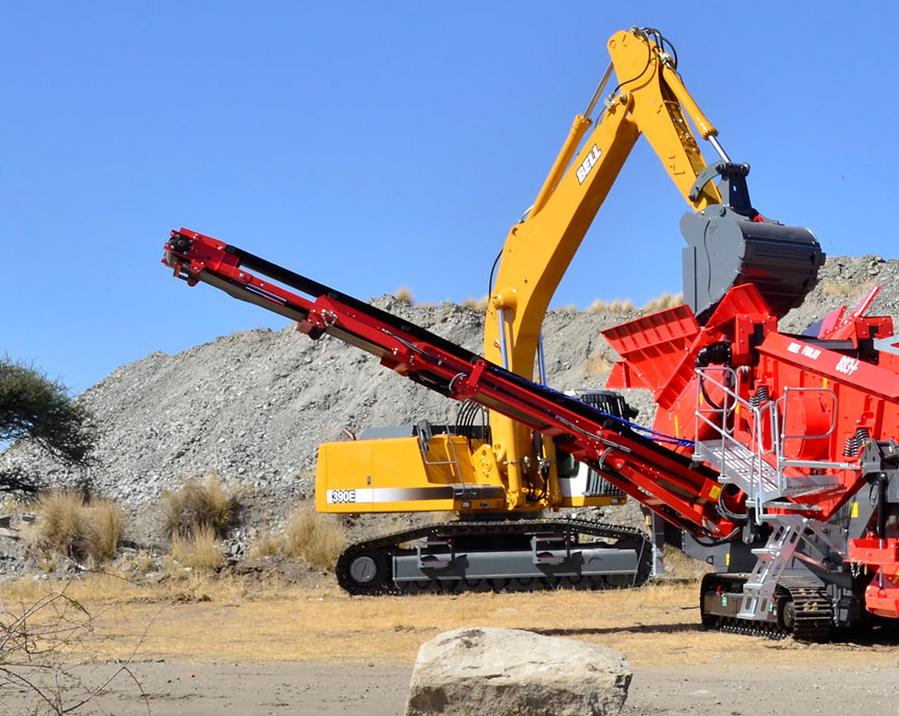
South Africa based Modi Mining has established itself as a key supplier to mining operators in underground and opencast mining services.
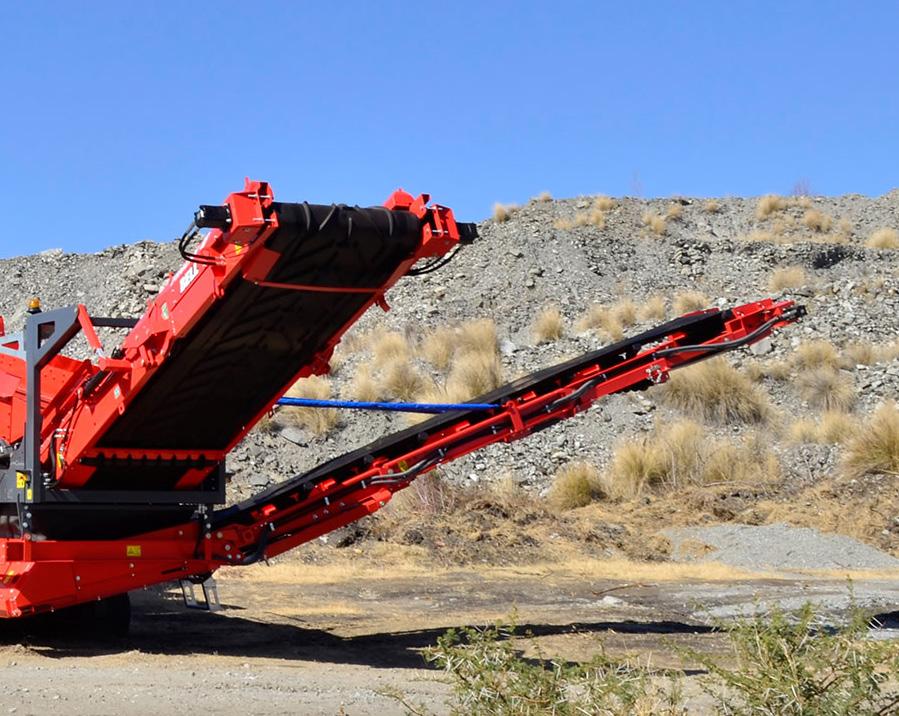
“Mining safely, responsibly, and efficiently has been the foundation of our success,” shared co-CEO, Sam Molefi.
Modi Mining offers a comprehensive suite of services for both capital and operational projects in both underground and opencast mining sectors.
Modi Mining’s underground mining services include conventional mining, tunnel developing, raise and winze developing, underground construction, equipping, drop raising, secondary support, and reclamation as well as sweeping and vamping.
In addition, Modi Mining offers trackless mining services such as tunnel developing, board and pillar mining, load and haul, belt cleaning services.
For open-cast mining, Modi Mining
provides topsoil stripping, overburden stripping, ore mining, load and haul, crushing, screening, material handling, stockyard management, and rehabilitation services.
“Our mission is to be catalysts of positive change in the mining sector and region by offering services and products of the highest quality and value, this helps us to positively impact our clients and the broader society for the long term,” he continued.
A key value for Modi Mining is its ethos of ‘Winning with the People’.
“We value our people, and aim to lead them with clarity and collectively own successes,” shared Sam.
Modi Mining’s people focussed ethos expands beyond its employees, with


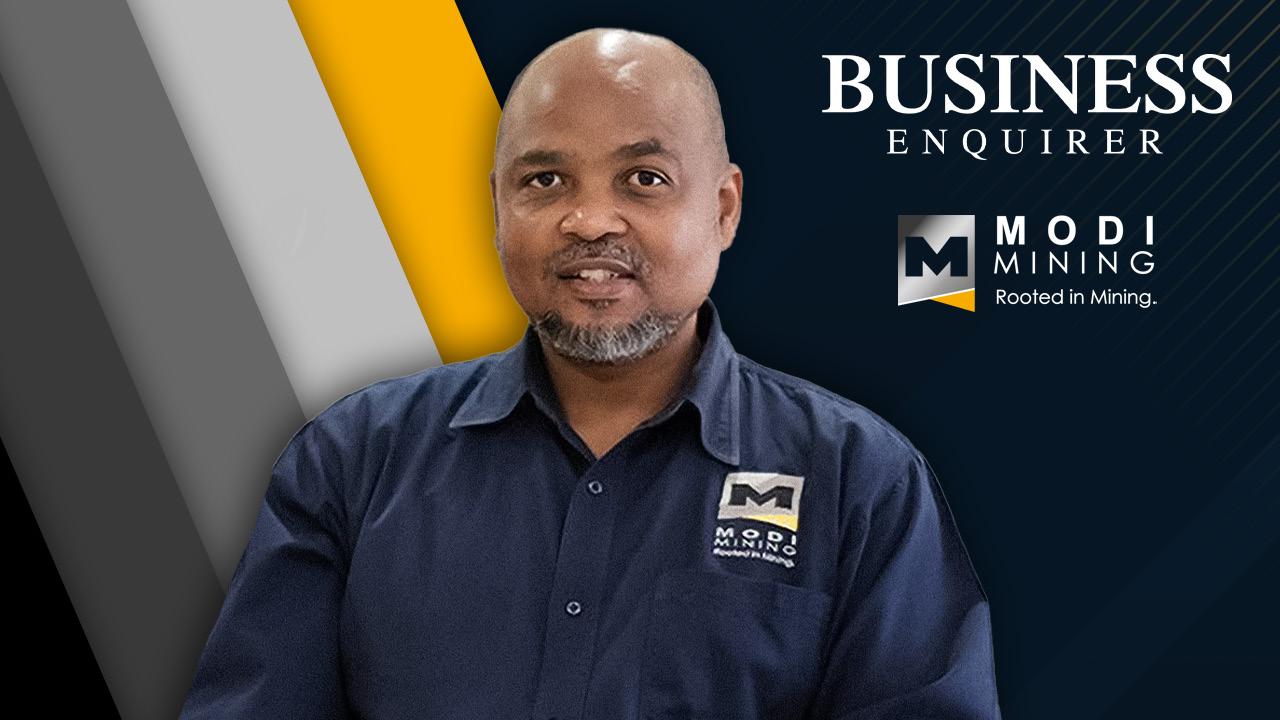

the business enhancing the lives of the communities in which it works.
The business has implemented several social initiatives to support entrepreneurs, as well as offer additional support in education, and health and wellness.
Modi Mining’s work with Techno Girls supports STEM sponsorship for young women in education, giving them career opportunities. In addition, the business supports exposure to mining careers, as well as a student exchange program.
The business also financially supports women via the Isago Foundation, and supports NPO’s such as Jessica Motene, which facilitates Depression Awareness campaigns and provides sanitary wear within identified communities.
Further to this, Modi Mining contributes to the funding of SMME via the Black Umbrellas programme.
“Our interest stems from having undergone the programme ourselves and having benefited immensely from it,” explained Sam, “What better way to express our gratitude than paying it forward to emerging businesses”.
“Our social investment efforts are fuelled by our drive for impact and the belief that real success is success that is collectively owned. Modi is actively involved in a variety of initiatives the end goal of which is to positively and sustainably impact communities,” he added.
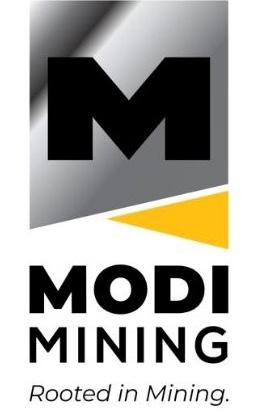




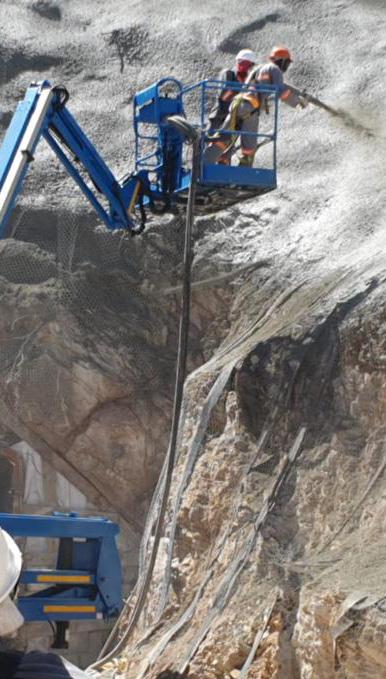


Experiencing being offered support in the industry itself, Modi Mining established its relationship with Exxaro in 2023, initially with two key projects in South Africa. The first being appointed to execute stockyard management and material handling services, and most recently mining at Exxaro’s Belfast Coal Mine.
“Working on these projects with Exxaro has had great benefits for our business. Not only has it helped to put Modi Mining’s name on the map, but it has also helped us to establish and improve our cash flow,” said Sam.
“Exxaro is a fantastic client to serve. Where some businesses would consider us a contractor, Exxaro treats Modi Mining as a partner - in words and in action,” he added.
Whilst Exxaro has provided up and coming mining companies with industry opportunities, Modi Mining is determined to continue the trend within South Africa,
providing mentorship opportunities to junior entrepreneurs as subcontractors and supporting others under our supplier development initiatives.
“We have been able to give opportunities to up and coming business to work with us on Exxaro projects, where we have supervised, guided, and managed them, to ensure our client’s high standards are met,” explained Sam.
CEO Sam has worked within the industry for 28 years, starting his career with Gold Fields Academy, qualifying as a mine engineer from Wits Technikon.
Holding a mine manager’s certificate of competency, he has managed local and international projects, including managing a mining explosives manufacturing plant, providing up the hole and down the hole services to Randgold Resources’ mines in Mali Republic.


Sam further worked as long-term planner with Anglo American Platinum, and served as a Mine Manager to other mines that includes PTM Maseve shaft sinking project, Crocodile River Mine and International Ferro Chrome.
With the leadership of Sam, Modi Mining has been awarded several industry accolades, including being recognised as 2018’s Entrepreneurs of the Year® by Business Partners and Sanlam, alongside his business partner, Motlapele Molefi.
The judges of Entrepreneurs of the Year® were particularly impressed by the business’ ability to achieve an average growth rate of over 30% per annum since starting operations in 2011, despite operating within an industry that faced high levels of volatility.
Commenting on the recognition, Sam said: “Being awarded the highly-esteemed title of Entrepreneur of the Year® confirms that we are on track to realising our overall business objective, which is to be the supplier of choice to the mining industry,”.
With 13 years in business, Modi Mining is continuing to work hard to establish a long-term sustainable business by targeting an addition of one new project per annum to its business, through careful bidding for new opportunities and selection of new clients that meet its risk metrics.
www.modimining.co.za
From its very name, 100% black-owned contract mining services business, Ritluka, is focussed on sustainable and responsible mining.
Based in South Africa, Ritluka means “leaf” in the language of Xitsong, emphasising the firm’s commitment to sustainability, collaborating with its clients to meet ESG targets.
“For us, Ritluka is a sign of life, growth, and new hope,” explained Ritluka’s Managing Director and co-founder, Rhandzu Ngobeni, “we work closely with our clients to ensure they are not only compliant to regulation, but also are mining responsibly across their business,”.
Founded in 2015, the business began by offering small scale technical services to mining companies.
Rhandzu explained how Ritluka received its “big break” from Exxaro three years later, where it was given the opportunity to mine and produce coal using its mechanised coal mining method.




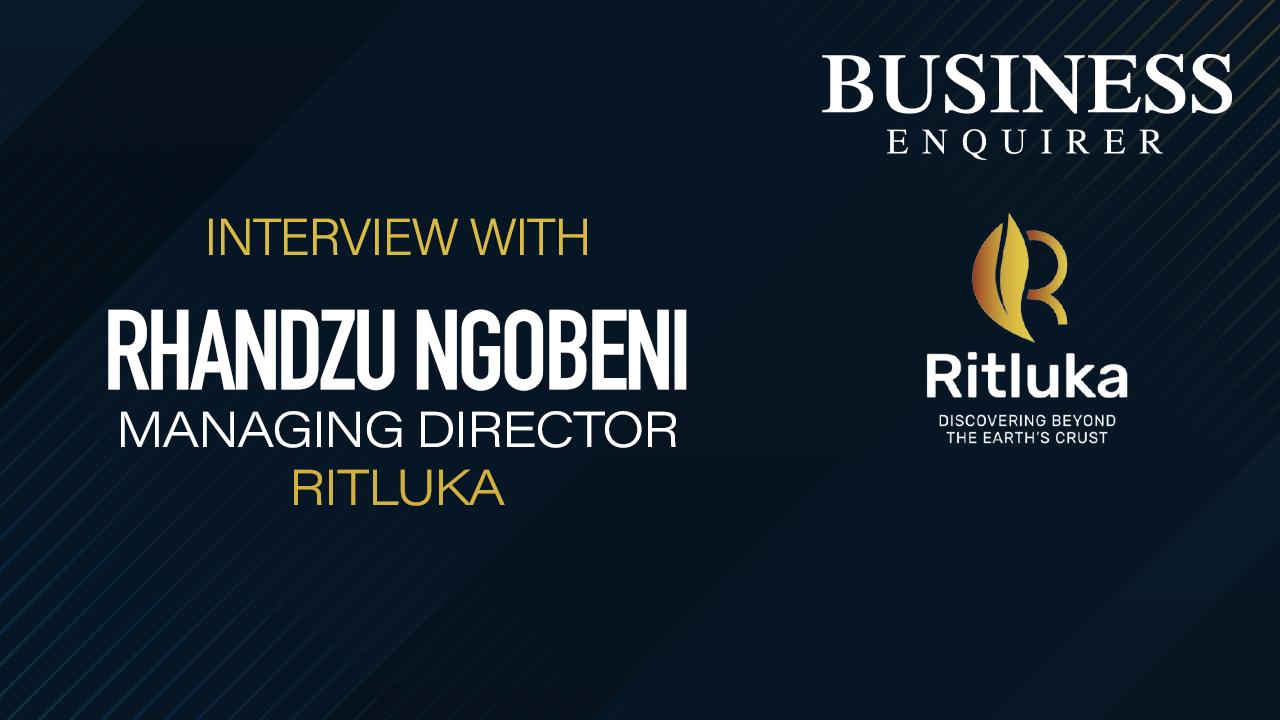
Since then, it has partnered with Exxaro on a variety of projects, including a major open-cast mining project, which Rhanzu said “opened doors, and enabled us to compete with major players in the industry”.
Further to this, Ritluka unlocked 10 million tonnes of coal for Exxaro Malta Mine, in turn extending the life of mine, by providing specialised underground tunnelling services.
“Exxaro have supported us since the beginning, and enabled us to make many achievements,” shared Rhandzu, “they have truly walked the road with us, offering the business’ assistance and upskilling opportunities where required”.
Seeking to make a positive impact
throughout every touch point of the business, this ethos forms part of the rationale behind Ritluka’s choice of world-class equipment alongside its commitment to provide industry-leading customer service.
With nearly a decade in the industry, the business provides a range of services across open-cast mining, drill and blast, underground mine support, underground contract mining, trading, technical services, and ventilation services.
Going full circle, Ritluka is offering opportunities to up-and-coming entrepreneurs in the mining sector with apprenticeships and incubation opportunities. As well as up-skilling the

local people in the regions it works, it has also made a commitment to utilise the local supply chain.
“As much as we can, we purchase consumables, ancillaries, additional labour, and so forth, from the local supply chain, supporting the region's economy,” explained Rhandzu.
Further to the opportunities it is offering South African people within the mining industry, Ritluka has developed a number of initiatives to support the local community from a wider perspective.
“Our company values are rooted in playing our part to uplift the communities we operate in, and the success of our company to date is rooted in our people,” shared Rhandzu.
Included in Ritluka’s impactful initiatives are its donation projects. One such project saw Ritluka donate car wash and sewing equipment to two local companies.
The donation has assisted the businesses (which are 51% black female-owned) in expanding and developing their operations. Continuing its circular approach to the local economy, Ritluka now procures its PPE from one of these companies.
Donating to a more social initiative, Ritluka also makes monthly grocery donations to a local nursing home in Kriel, having already donated cooking equipment and food parcels to the facility.
Another social initiative, in 2020 Ritluka hosted a football tournament, as the
Underground

Underground
Ventilation
Technical

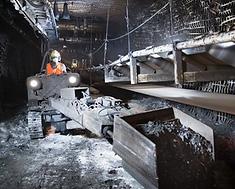


official sponsor of the Kriel Football Association. The firm donated ten football kits to all the teams in the league.
Throughout all the matches played in the season, Ritluka provided refreshments, transportation, and any other assistance required by the Kriel Football Association.
From an educational perspective Ritluka has paid focus to upskilling local young women.
“The objective of the training was to equip these young ladies with ADT licences so that they can have access to employment opportunities,” added Rhandzu.
The business has also sponsored over a 100 students from the University of Witwatersrand to attend a mine tour hosted by various mines. By attending these tours, the students had a first hand experience of how the operations of the companies are carried out.
While social impact is considered a priority for Ritluka, the mining firm is an advocate for advancing environmental, social and governance responsibilities within the industry and the region.
“We are committed to causing no harm to the environment by ensuring that we proactively mitigate environmental impacts,” said Rhandzu.
Working collaboratively with its clients, Ritluka also ensures that it adheres to the environmental policies of its clients.
Ritluka’s health and safety track record incorporates best-in-class corporate practices, enabling it to deliver the excellent customer service it is committed to, all whilst ensuring the highest levels of safety for our employees and communities at large.
“We live by the responsible management of health and safety, ensuring zero harm is caused,” added Rhandzu.
Finally, Ritluka is proudly a 100% black owned entity, with a strong corporate governance. The business ensures that best practices are carried out throughout its operations, as well as committing to complying with industry requirements.
“Our company policies have zero tolerance for unethical practices,” explained Rhandzu.
As it approaches its 10 year anniversary, Rhandzu and his team now have their sights set on growing from a contract mining service provider, to a mine owner and operator.
“We are looking at both green and brownfield opportunities, exploring the opportunity of partnerships and acquisitions,” said Rhanzdu.
www.ritluka.co.za
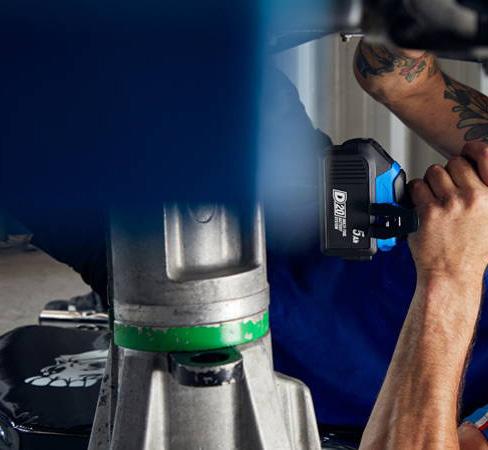
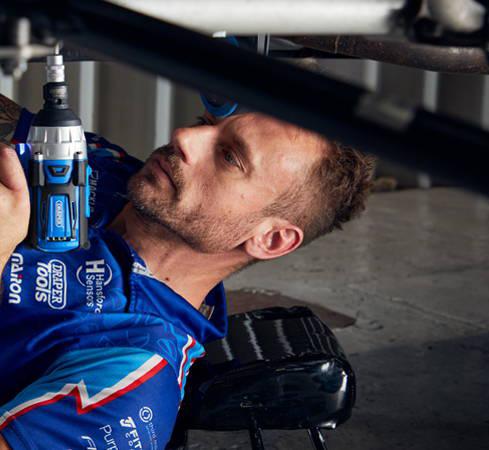
DWAITE
DRAPER TOOLS PROJECT DIRECTED BY: JAMIE
In 2024, Draper Tools continues to thrive as a prominent player in the tool supply industry, demonstrating remarkable growth and innovation. The DIY market remains a key driver for the UK economy, with home improvement and maintenance projects fueling steady demand for quality tools.
raper Tools, which supplies around 11,000 products worldwide to traditional trade stores, has seen substantial growth across both e-commerce and traditional retail channels. CEO Matt Sheen, who took on the role at the start of 2023, emphasized the importance of balancing online and in-store presence. "We have seen significant growth in our e-commerce sector as well as continued strong performance in traditional trade stores, which remain crucial to our business model," Sheen explained.
Draper Tool‘s Intralogistics partner for the new distribution center in North Baddesley. Whether you‘re establishing a new warehouse or expanding your current one, we have the ideal solution to meet your needs.

Contact us:

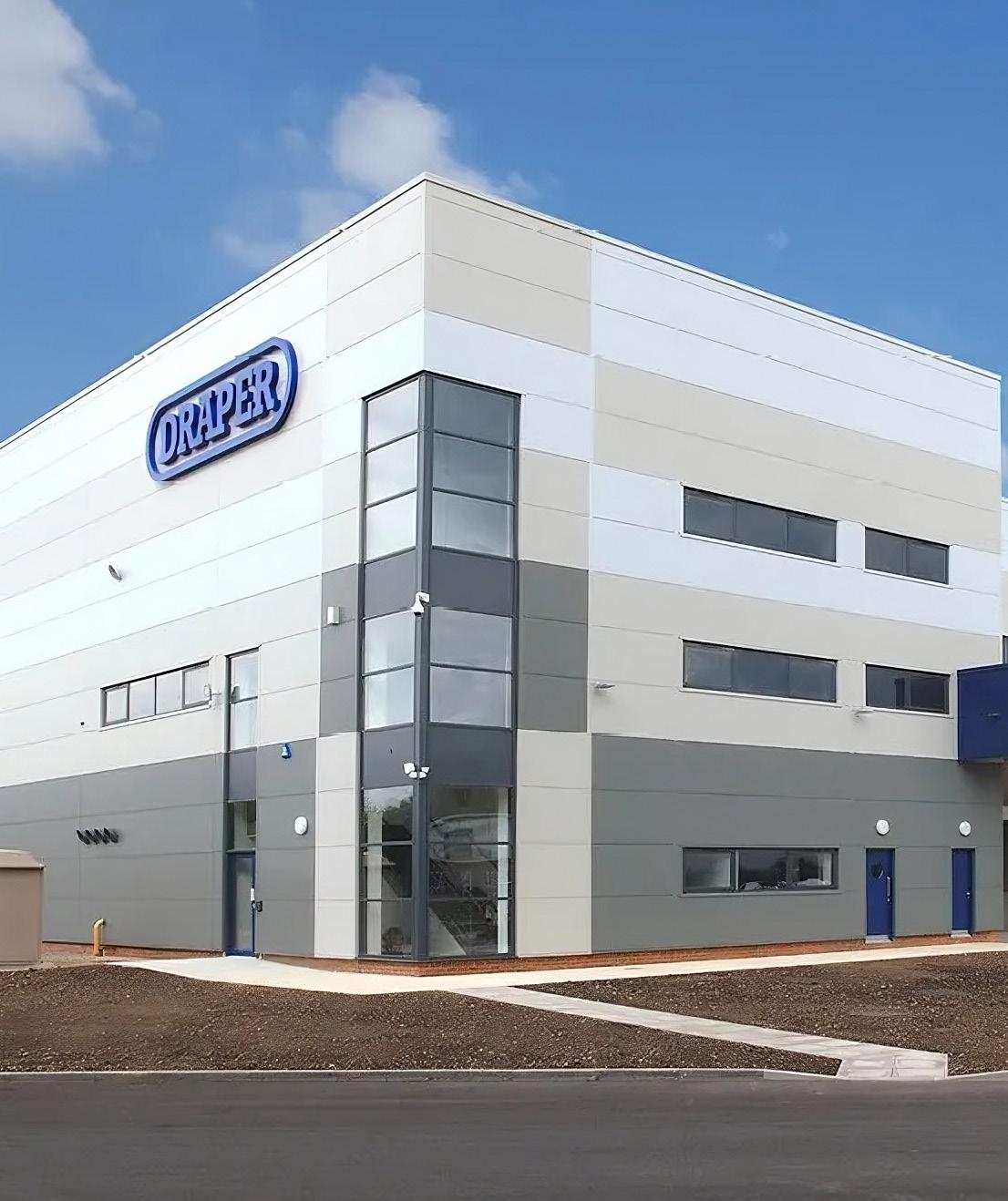
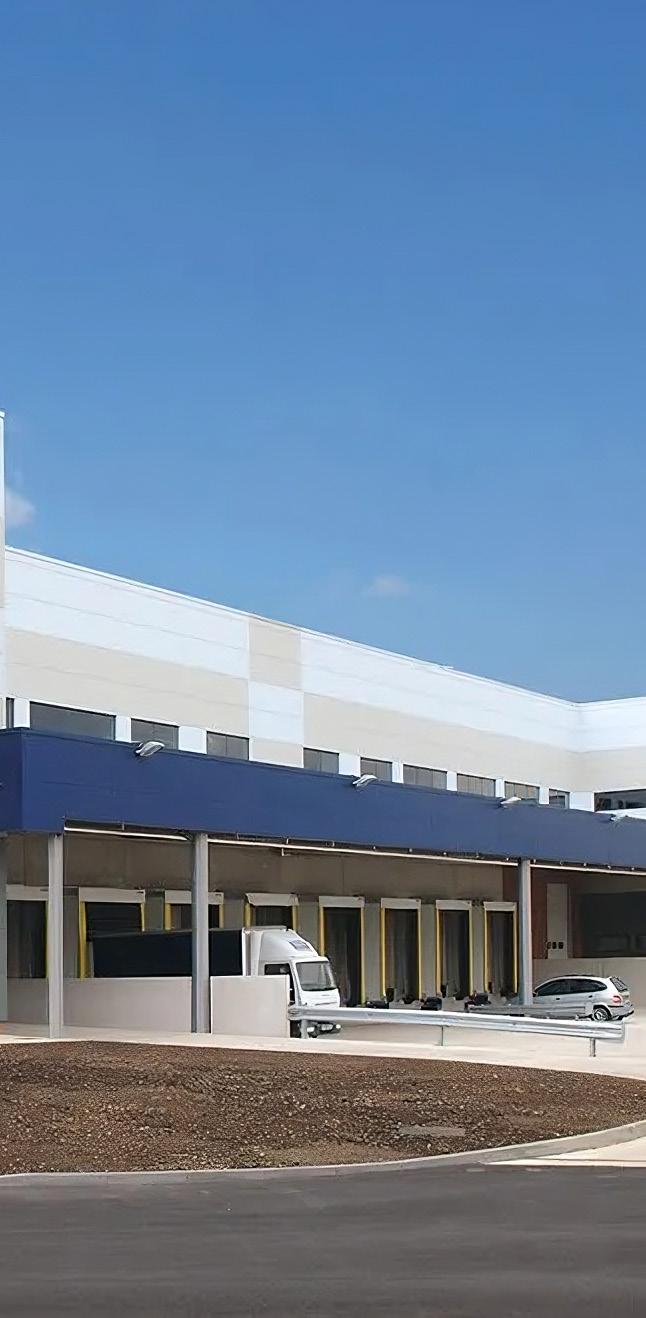
Draper Tools' extensive product range includes renowned trade brands such as Elora, XP1000, Knipex, and Bunker, along with Draper Tools’ own lines. “Draper is our core range of quality tools, suitable for tradespeople and DIY enthusiasts. Meanwhile, Draper Expert is our range specifically designed to meet the demands of trade professionals,” shared Matt.
The business, established in 1919 and now in its fourth generation of family ownership, has demonstrated resilience and adaptability over the years. Its sustained financial growth has supported comprehensive expansion plans.
Headquartered in Southampton, UK, Draper Tools also has a warehouse and sales facility in the Netherlands and a facility in Shanghai, China.
As part of its future-proofing growth strategy, Draper Tools finalized its new, purpose-built warehouse in Southampton, which became fully operational in December 2023. The 350,000 square foot warehouse allows the business to increase its product capacity and enhance efficiency.
In a significant move towards operational excellence, Draper Tools has partnered with SSI Schaefer, a leading provider of warehousing and logistics solutions. This collaboration has enabled Draper Tools to implement state-of-the-art automation and inventory management systems. "Our partnership with SSI Schaefer has been instrumental in optimizing our supply chain and meeting the rising demand for next-day delivery," explained Matt. "The new warehouse, designed for 24/7 operations, provides us with the capacity to scale our business and improve service levels."
The facility features advanced automaticpicking systems to support efficiency and includes sustainable energysaving options such as a Solar PV system, enhancing the warehouse's self-sustainability. "Our sustainability credentials are always evolving, and we have invested in R&D to improve not only our own sustainability but also that of our customers," said Matt.
Draper Tools is also committed to reducing its environmental impact by removing plastic from its packaging and favoring recyclable materials. This initiative has resulted in a 20% reduction in plastic packaging, removing nearly 18 tonnes of plastic waste from what was sold in 2023.
With the growth of the business's physical and online presence, Draper Tools has also seen an increase in staffing levels over the last two years. Now employing around 300 people worldwide, Matt highlighted a positive mix of the experienced ‘oldguard’, some of whom have been with the business for 35 years, along with new talent.
Matt Sheen, though relatively new as CEO, is not a stranger to Draper Tools. He began his career at Draper Tools at 18 years old and later held significant roles at Metabo UK and Bosch Power Tools before returning to Draper Tools in early 2023.
As Draper Tools looks ahead to the future, its commitment to quality, innovation, and sustainability ensures its continued success and growth in the global market.
www.drapertools.com





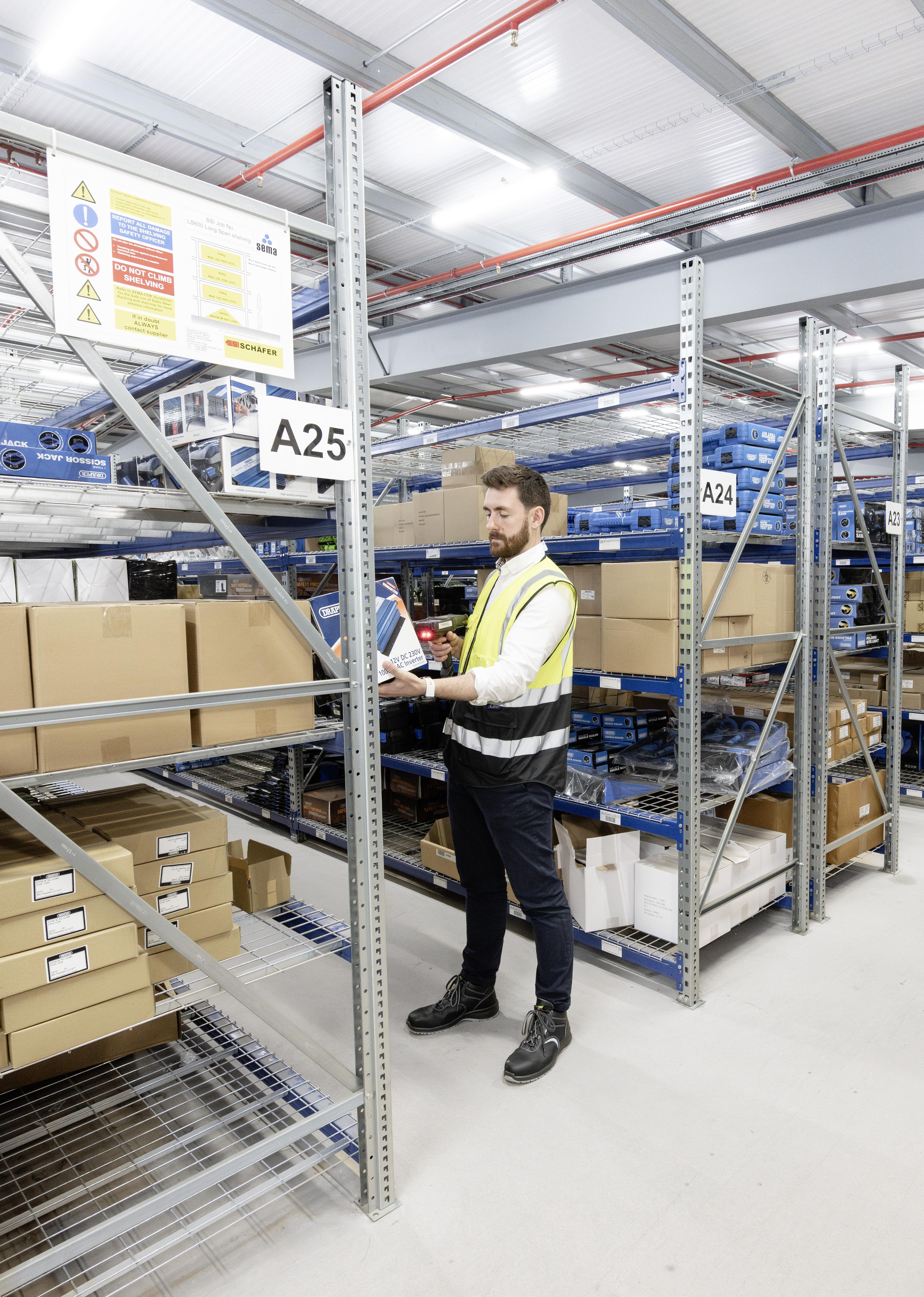

Large Range - Even Greater Challenges
From jacks to spanners: Draper Tools offers a comprehensive range of hand and power tools and equipment for every need. Founded in 1919 by Bert Draper, the company sells over 11,000 products to DIY enthusiasts and trade customers from the construction, automotive, mechanical engineering and agricultural sectors via a global dealer network. John, Tom and Joe Draper are at the at the helm of the British family-owned business and continue to expand it with great commitment. But as the company grows, so do the challenges: In order to successfully manage the extensive product range, highperformance and future-oriented logistics are now more important than ever.
• SSI Schaefer implements customised logistics concept for Draper Tools in Great Britain
• The solution includes a Flow rack with pick-by-light, longspan shelving, modular shelving systems, and container conveyor technology
• Efficient solution based on the goods-to-person principle saves storage space and optimises shipping times

In 2019, Draper Tools turned to intralogistics expert SSI Schaefer to relocate picking and storage to its new site in North Baddesley, Hampshire. The aim was to make optimum use of the existing warehouse space, improve processes and reduce shipping times. A challenging task that could only be mastered through particularly close cooperation:
"Throughout the project, the support from SSI Schaefer was exceptional. We had the feeling that we had a partner who not only worked with us, but also for us. They took the time to understand our complex
business processes and helped us refine them," praises Matt Boschi, Operations Director at Draper Tools.
From an initial automation idea, SSI Schaefer and Draper Tools jointly developed a solution that is perfectly tailored to the warehouse layout, operation and the wide range of SKUs of the tool wholesaler: 21 picking stations with pick-by-light flow racks for fast movers, as well as shelving racks for slow-moving items, connected by bin conveyor technology over three levels. The semi-automated system with ability
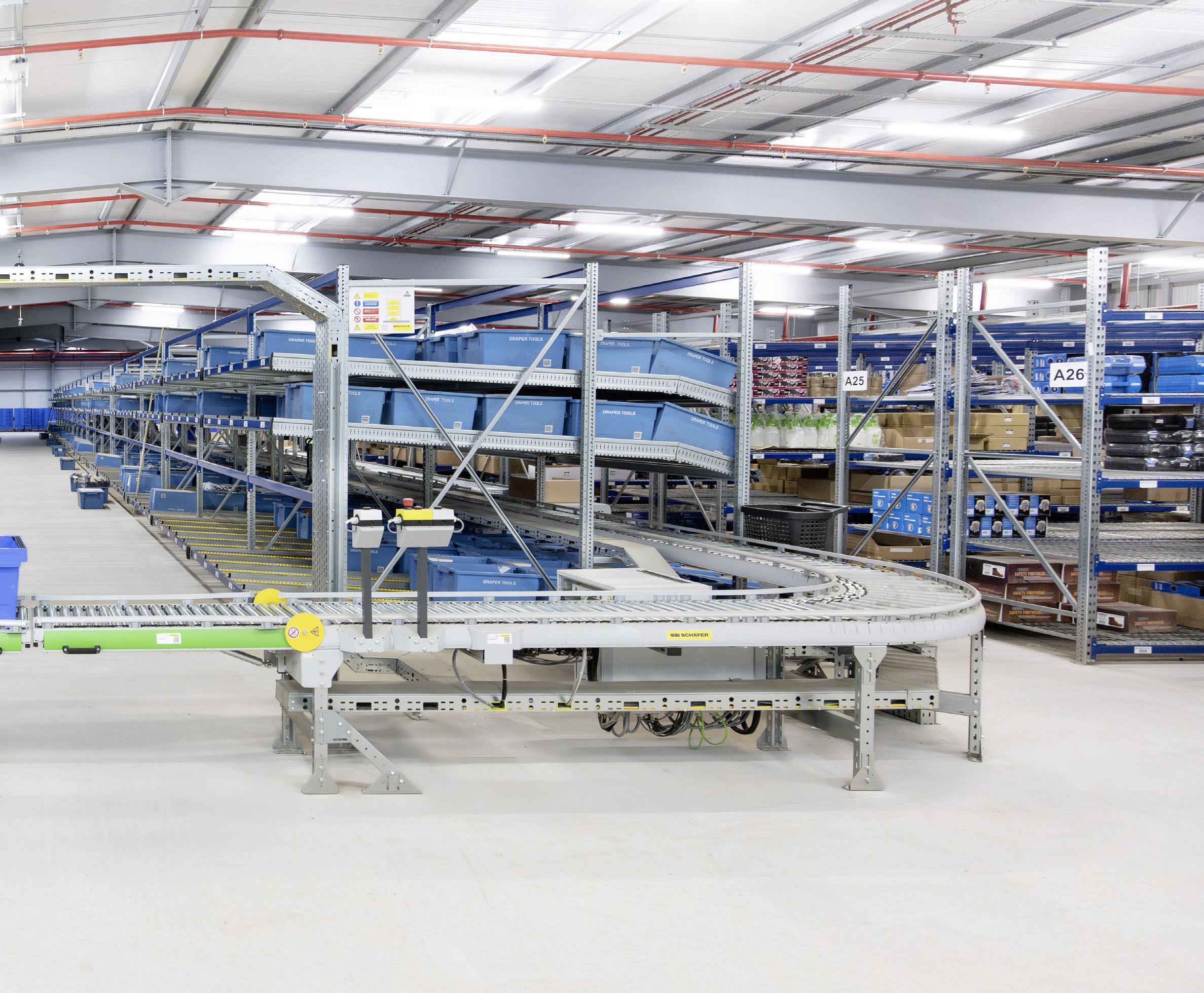
to hold 8,000 different SKU’s is designed according to the goods-to-person principle and enables efficient picking of up to 25,000 units per day.
As soon as an order is received, orders are allocated to totes which are automatically launched from the tote destacker.
Bins are transported via the conveyor system to the flow rack system (KDR) on the second floor, where they are loaded using pick-by-light. The KDR is ideal for small parts and, thanks to its robust roller rails, enables containers to flow smoothly from the loading to the
picking side. This significantly reduces the walking distances for employees, reduces replenishment effort and speeds up order picking. Thanks to the dense storage in the KDR, the available space is also optimally utilised. In addition to the storage capacity, Draper Tools can also significantly increase the quality of its processes: the pick-by-light system virtually eliminates picking errors and increases speed of pick.
Even managing large SKUs is no problem with the new semi-automatic solution from SSI Schaefer. This is ensured by
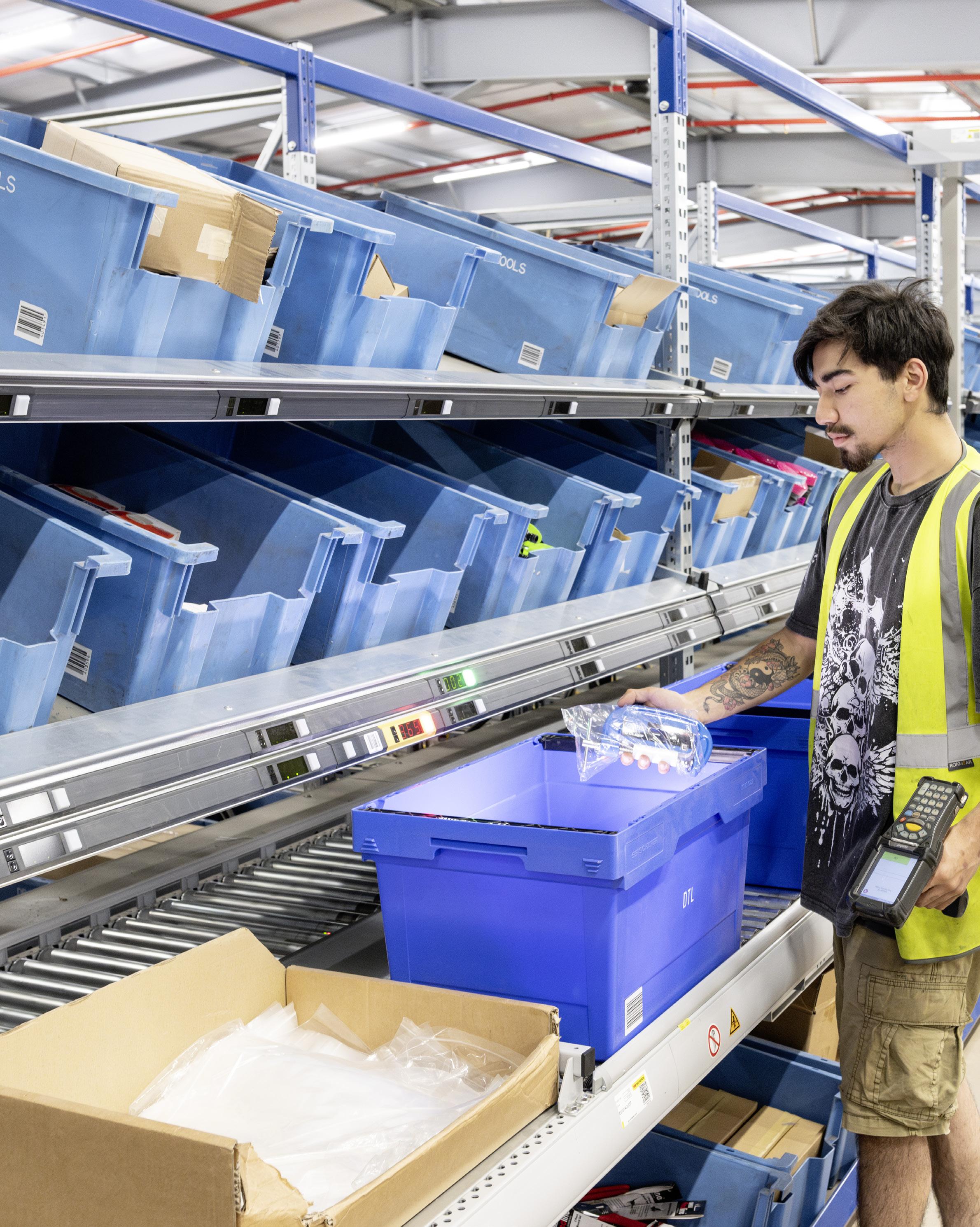

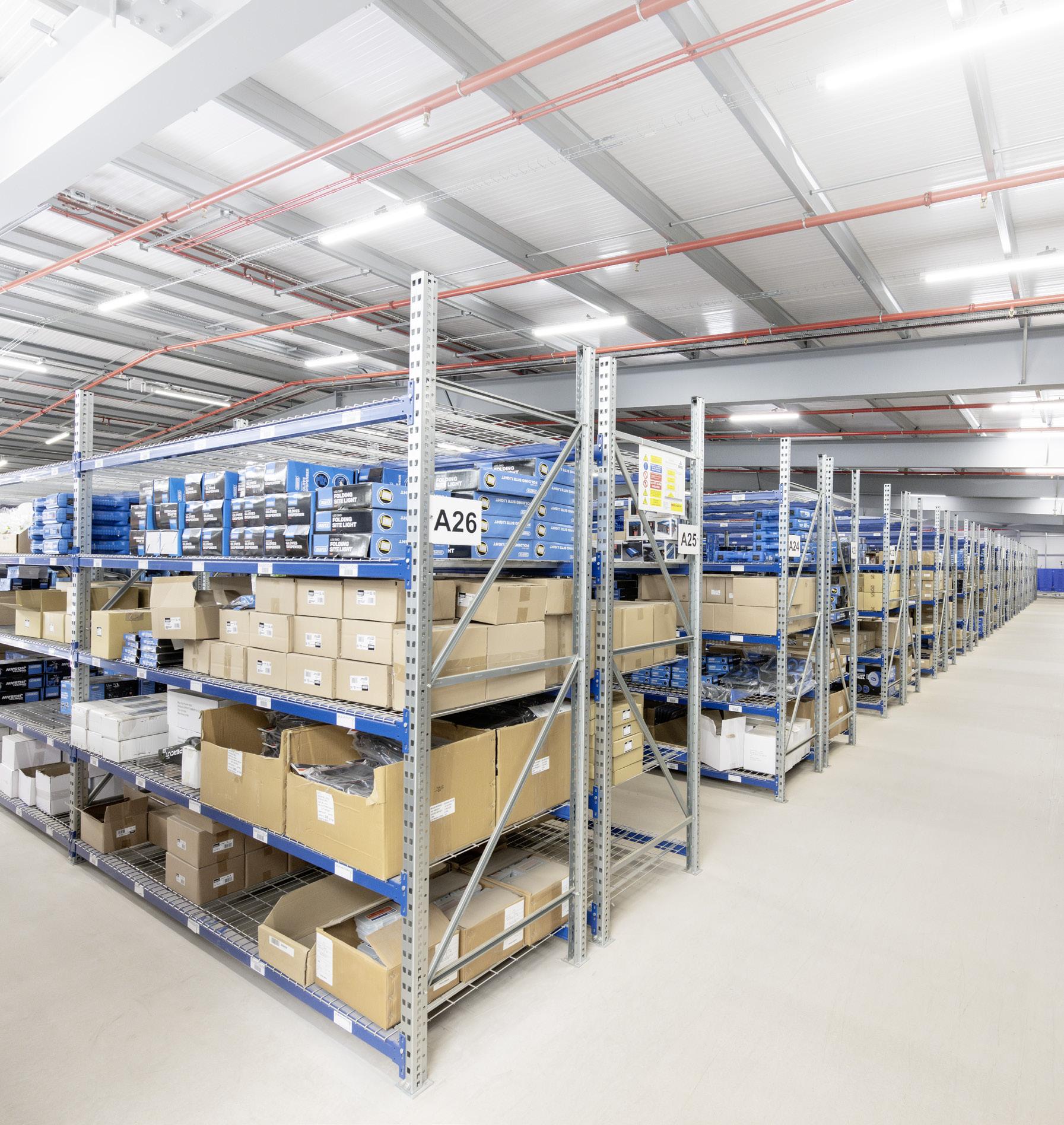
shelving, which can be flexibly adapted to a wide variety of items and individually extended in height, depth and field width, and wide-span shelving for bulky and heavy stored goods.
The goods are picked into the containers and transported to the second floor, where the entire process is repeated. A goods lift is included for those items which are too large for a tote. Seamless material flow is guaranteed: conveyor technology connects all levels and workstations right through to packing and goods issue on the first floor. The ingenious yet simple layout also saves valuable space and offers Draper Tools every opportunity for adaptation and future growth.
More storage capacity, better performance, higher customer satisfaction - the move to automation has already paid off for Draper Tools. Within just six months of commissioning the new warehouse solution, the most important goals were achieved: "We have seen a significant increase in picking and packing speed, allowing us to serve our customers even faster. Thanks to the optimal scalability of the system, Draper Tools is ideally equipped for a successful future and will continue to shape it with SSI Schaefer as a reliable partner.”
www.ssi-schaefer.com


One such initiative is the expansion of community centers and recreational spaces. The council has invested in upgrading existing facilities and creating new spaces for residents to gather, learn, and engage with one another. These investments are part of a broader strategy to improve social cohesion and ensure that Norwich remains a welcoming and vibrant place for people of all ages and backgrounds.
“We’re committed to making sure that everyone in Norwich has access to the resources and opportunities they need to succeed,” McCabe emphasized. “Whether it’s through housing, education, or social programs, we’re working to create a more inclusive city where everyone can thrive.”
As Norwich City Council looks to the future, the achievements of 2024 have set a solid foundation for continued success. With a clear focus on sustainability, innovation, and community engagement, the council is well-positioned to meet the challenges of tomorrow while continuing to enhance the quality of life for all residents.
Tom McCabe is optimistic about what lies ahead: “2024 has been a transformative year for Norwich, but we’re not stopping here. Our vision for the future is bold, and we’re excited about the opportunities to continue improving our city. Whether it’s through our environmental initiatives, economic development efforts, or support for the community, we’re building a city that is truly fit for the future.”
In partnership with forward-thinking businesses, engaged residents, and strategic partners, Norwich City Council is on track to achieve even greater milestones in the coming years. With the foundation laid in 2024, Norwich’s future looks brighter than ever, and the city is poised to remain a leading example of progress, innovation, and inclusivity in the UK.
In 2024, Norwich City Council stands as a beacon of progress, demonstrating that with the right vision and partnerships, local governments can lead the way in sustainability, innovation, and community building. Through its ambitious initiatives and collaborative spirit, the council is ensuring that Norwich continues to evolve as a vibrant, forward-thinking city that works for all its residents.
www.norwich.gov.uk
In the fast-paced world of high finance, where agility and speed are critical, there are few players as innovative and reliable as Suros Capital. Established as a specialist lending company, Suros Capital provides short-term loans secured against a range of luxury assets. This niche offering serves a unique segment of clients—individuals and businesses who often face liquidity challenges but possess high-value assets that can be used to unlock immediate funds.
Suros Capital’s forte is its ability to deliver rapid, tailored financing solutions to clients, whether they require funds to manage a temporary liquidity shortfall, seize a lucrative investment opportunity, or bridge a gap until a larger transaction is completed. The company’s short-term loan products are structured specifically for high-net-worth individuals, entrepreneurs, and asset-rich clients who need to access capital without the lengthy processing times or bureaucratic requirements of traditional financial institutions.

With the support of its parent group, Suros Capital has positioned itself as a trusted partner in the alternative finance market. Collectively, the group has lent over £200 million against luxury assets since its inception in 2010. This extensive experience is supported by the backing of Crestline Investors, Inc., an institutional alternative asset manager headquartered in Fort Worth, Texas. With additional offices in New York, Chicago, London, Toronto, and Tokyo, Crestline’s global presence and expertise further solidify Suros Capital’s standing as a premier lender in the luxury finance space.
One of Suros Capital’s key differentiators is its willingness to lend against a broad spectrum of luxury assets. The company’s lending solutions cover high-value items such as fine art, jewelry, luxury watches, classic and high-performance cars, and other bespoke collectibles. This diversity allows clients to leverage their unique holdings to meet their financial needs without being constrained by the type of asset.

SUROS CAPITAL PROJECT DIRECTED BY: LISA MAXWELL


The in-house and independent appraisal teams at Suros Capital ensure that every asset is accurately valued, facilitating a smooth and transparent loan process. This rigorous appraisal approach not only protects the interests of both lender and borrower but also demonstrates the company’s commitment to delivering a reliable, trustworthy service.
At the core of Suros Capital’s success is a team of seasoned professionals who bring decades of experience in finance, lending, and luxury asset management. Their combined expertise allows the company to navigate the complexities of high-value lending with a level of sophistication and nuance that is unmatched in the industry.
Edward Blackmore, Suros Capital’s Business Development Director, is a pivotal figure in driving the company’s growth and expansion. Edward’s background in sports finance, with a specialization in structured and debt finance for professional football clubs and sports franchises, has equipped him with a deep understanding of complex financial structures and highstakes negotiations. Before joining Suros Capital, Edward was the head of Back Talent, a private equity firm focused on sports real estate and academies. This unique combination of experience allows Edward to bring a fresh perspective to the luxury finance industry, helping Suros Capital innovate and expand its offerings.



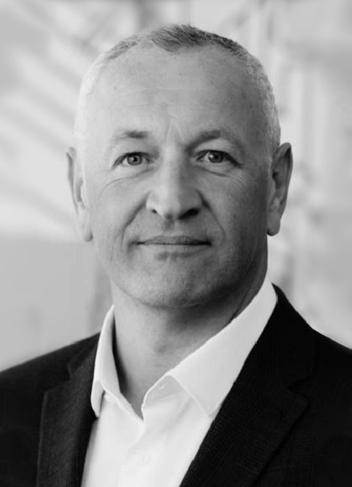
Ray Palmer, the Director and co-founder of Suros Capital, brings a wealth of experience in luxury asset lending. Prior to establishing Suros Capital, Ray was instrumental at Borro, a leading luxury asset lending firm, where he managed the top 20% of clients and underpinned over £55 million of annual lending. His extensive experience with high-net-worth clients and his deep understanding of the luxury finance market make him an invaluable asset to the company. Ray’s vision has been instrumental in shaping Suros Capital into a trusted provider of bespoke lending solutions.

Paul Aitken, Chairman and Owner of Suros Capital, is a pioneer in the luxury asset lending sector. He previously founded Borro, which provided £220 million in luxury asset loans between 2012 and 2017, delivering an impressive annual return after losses of 35%. Paul’s success in securing funding from Crestline Investors for both Borro and Suros Capital speaks to his strategic acumen and his ability to build robust, high-performing financial ventures. Beyond Suros Capital, Paul maintains interests in several other financial services ventures, including CasaFi and Suttons and Robertsons, further highlighting his broad influence in the sector.
Suros Capital’s success lies in its commitment to delivering bespoke lending solutions that are as unique as its clients. The company understands that individuals facing liquidity challenges often require a degree of flexibility that traditional lenders cannot provide. By offering loans secured against a diverse range of high-value assets, Suros Capital enables its clients to access funds quickly, without the delays and limitations associated with conventional financial institutions.
Furthermore, the company’s partnership with Crestline Investors ensures that it has a strong and reliable capital base, allowing it to offer competitive rates and terms. This backing, combined with Suros Capital’s deep industry knowledge and expertise, positions it as a leader in the luxury finance market.
Suros Capital stands out not just for its expertise and financial strength, but also for its commitment to building long-term relationships with its clients. The company’s approach goes beyond transactional lending; it is about understanding the unique financial needs of each client and offering personalized solutions that go beyond simple liquidity. Whether it’s for a collector needing to release capital for a new acquisition or a business owner looking for short-term financing, Suros Capital’s team works closely with each client to craft tailored strategies that align with their broader financial goals.


This relationship-centric approach is underpinned by a dedication to confidentiality, speed, and professionalism. Every client interaction is handled with the utmost discretion, ensuring that sensitive financial matters are managed with care and precision. This focus on trust and transparency has been key to Suros Capital’s growing reputation as a go-to lender in the luxury asset finance market.
In a market where speed, discretion, and expertise are paramount, Suros Capital has emerged as a trusted partner for individuals and businesses seeking shortterm lending solutions secured against luxury assets. With a leadership team that brings decades of experience, a commitment to fair and accurate asset valuations, and the financial strength of Crestline Investors behind it, Suros Capital is well-positioned to continue its growth and success in the high-end lending
For clients who need to raise capital quickly and efficiently, Suros Capital offers a solution that combines the best of modern finance with a deep appreciation for the value and intricacies of luxury assets. Whether the asset in question is a rare piece of art, a vintage car, or an exquisite piece of jewelry, Suros Capital has the expertise and resources to help clients unlock its full financial potential.


The recent appointment of Dan Barnholden as CEO of Luca Mining Corp (Luca) sees the Canadian mining firm add further strength to its continued growth.

LUCA MINING
PROJECT
DIRECTED BY: GARY SMITH
ARTICLE WRITTEN BY: LAURA WATLING
Dan, taking on the role from July 2024, is a seasoned professional with over 20 years of experience in senior mining investment banking roles at bank-owned and boutique dealers in Toronto and Vancouver.
Chairman of Luca Mining Corp, David Rhodes, commented on the appointment:
"I'm very pleased to announce Dan joining the Luca team as CEO… Dan's proven track record aligns with our vision of transforming Luca into a prominent mid-tier company. We are confident that his leadership will steer us towards new heights of success and industry recognition”.
The announcement of Dan’s appointment comes at a time which the new CEO recognises as the “next chapter” of the firm, which has recently experienced significant steps in its business growth.
In July 2024 it was announced that Luca had completed the construction of its Tahuehueto gold mine, found in the north-western Durango state of Mexico. Tahuehueto is a large property, spanning 121 square kilometres, which hosts an extensive epithermal gold vein system with less than 10% of the prospective ground explored so far.
Most recently, Luca has successfully completed the installation of a third filter press at the gold mine. The firm utilises dry stack tailings which has many advantages over traditional methods including significant reduction of water usage, materially reduced environmental risk, non-hazardous and safe storage of tailings cakes, and faster and more efficient reclamation in the future.
The mine is a fully permitted underground operation with a 1,000 tonne per day (tpd) nameplate processing capacity. The mine was completed within budget and has been successfully producing on a preproduction basis for several months. The crucial enhancement at the mine will enable it to achieve commercial levels of processing rates (an average of approximately 800 tpd or 25,000 tonnes of ore per month) by the end of September 2024.
In addition to this increase in production capacity, Luca is actively continuing its underground development efforts at the property. Resource drilling from underground is expected to commence in the coming weeks, with a focus on new zones with significant mining widths. This drilling initiative is anticipated to increase the resource at Tahuehueto, bolstering the company's asset base.
The combination of increased production, resource development, and exploration investment positions Luca for sustained growth and profitability in the future.
Commenting on the developments at Tahuehueto, Dan said:
"We are extremely pleased with our progress at the Tahuehueto Gold Mine… Tahuehueto is set to become

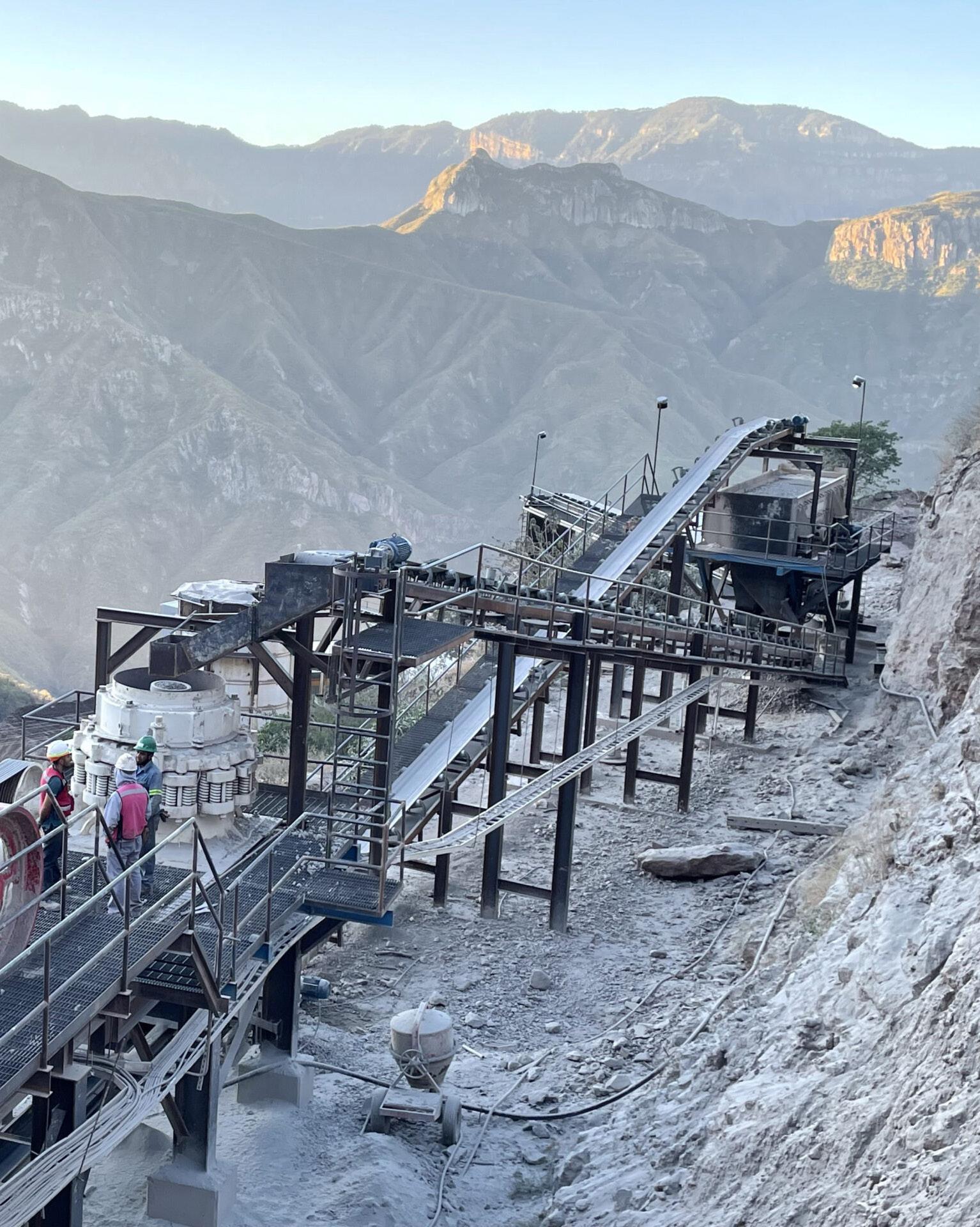




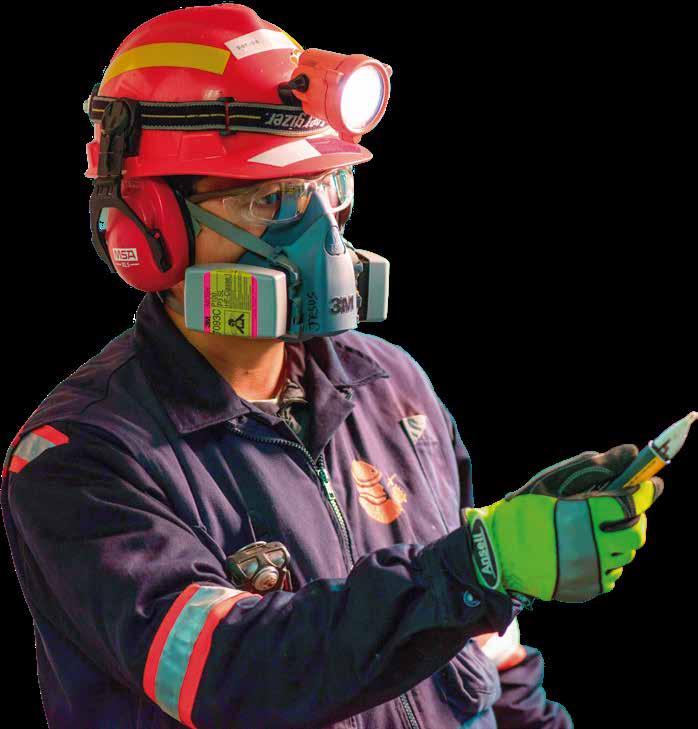
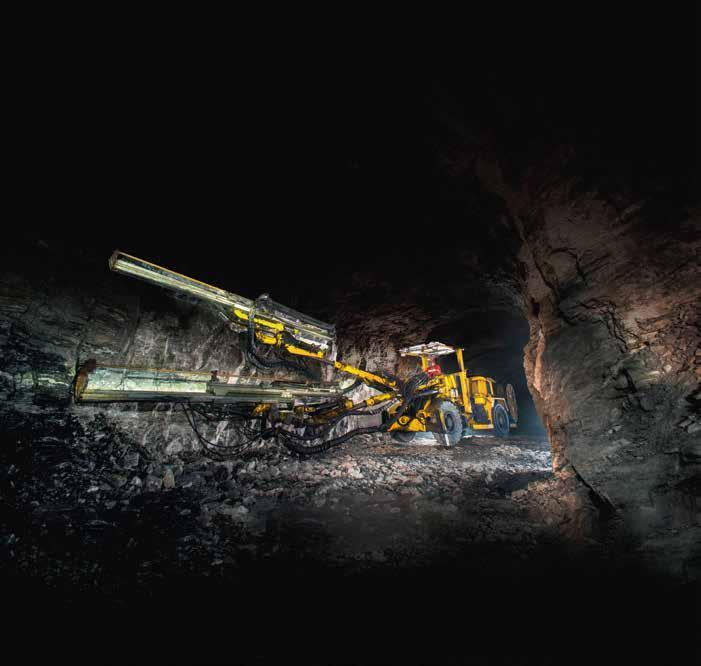
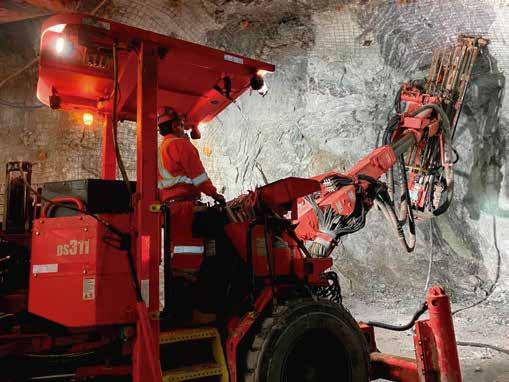
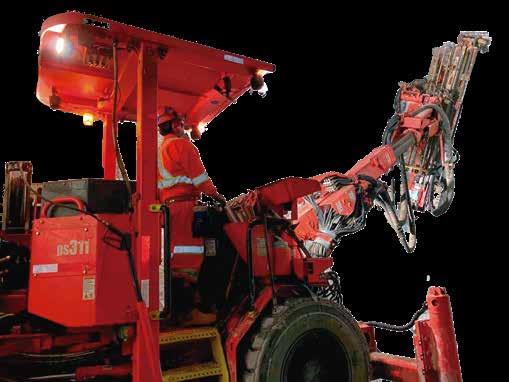




At CoMinVi, we are proud to have more than 20 years of experience in the mining industry, during which time we have established ourselves as leaders in the construction and development of underground mines and in the exploitation of ore deposits. Throughout our history, we have participated in more than 35 projects, collaborating with national and international companies.
Our approach focuses on safety, quality and teamwork, elements that have allowed us to establish a solid reputation in the Mexican Republic and in the region. Our people, their experience and knowledge, as well as the use of state of the art technology, are the pillars of our success and the reason why we continue to be a benchmark in providing services in the mining sector.
Today, we are proud to announce our participation in an exciting new project: the Campo Morado mine, located in the state of Guerrero, in partnership with Luca Mining. The Campo Morado Mine is one of the most important in the region, and we feel honored that Luca Mining has placed its trust in us to carry out this operation. For CoMinVi, this project

Since the beginning of this alliance, we accept the responsibility for the tasks of contributing to the success of Campo Morado. We will apply all our experience, deliver and dedicate ourselves to meet the objectives and goals set by our client, always focused on safety and efficiency. We are convinced that, through constant and safe work, the Campo Morado mine will soon attain the leadership position in mining production that has characterized its history.
This alliance marks the beginning of a long-term business relationship between CoMinVi and Luca Mining. Our commitment is not only to the mine and our client, but also to the economic development of the Guerrero region. We are confident that this collaboration will be a fundamental part of Campo Morado’s growth and will contribute significantly to the progress of the local community and the environment. At CoMinVi, we move forward with the certainty that, by working together, we will achieve results that benefit everyone involved, reaffirming our commitment to excellence, safety, social and environmental responsibility in each project we undertake.



the second cornerstone asset at Luca… This is a tremendous achievement, and it reinforces the strength of our team, which is underpinned by the high geological prospectivity of our asset and the favourable operating environment in Mexico."
Further to the developments at Tahuehueto, Dan is being supported by previous interim CEO, Ramon Perez, to optimise operations at Campo Morado. Based in Guerrero, Mexico, Campo Morado is considered the country’s sixth largest zinc producer. The property is an underground multi-metal mine with infrastructure, installations and equipment capable of processing 2,500 tonnes of ore per day, with over 700 exploration diamond drill holes in place. In August 2024, Luca engaged Cominvi to carry out core mining operations at Campo Morado.
Cominvi is one of the largest and most respected mining contractors in Latin America with particular expertise in underground mining.
Working with Cominvi will allow Luca to quickly increase production at Campo Morado and will provide cost effective access to newer mining equipment for the firm’s ongoing operations. It's also expected that the appointment will help ensure that the mine can meet and exceed its daily production targets and will provide a rapid path to further increases in production and revenues without incurring significant capital expenditures. With the support of Cominvi, it’s anticipated that Campo Morado’s mill throughput will increase from the 1,4001,600 tpd to 2,000 tpd by year-end and will continue to push forward to 2,400 tpd mill rate during 2025.
“These achievements, along with the Company's previously announced Campo Morado Improvement Project to increase metallurgical recoveries and produce higher value concentrates, will have a material positive impact on the Company's production, costs and cash flow,” commented Dan.
At both of its 100% owned mines (Tahuehueto and Campo Morado), the Canadian firm has announced plans for exploration drilling campaigns. Approximately 5,000 metres will be drilled at each project to test high potential targets on trend with the current mining areas.
Of the campaigns, Dan said: "The exploration potential at Campo Morado and Tahuehueto is game changing. Both projects already have demonstrated strong cash flow potential and exploration success at one or both projects will take Luca into a new league. We intend to grow our company and are targeting no less than 200,000 oz Au Eq production and our development, exploration and expansion plans have the potential to get us there,".
www.lucamining.com

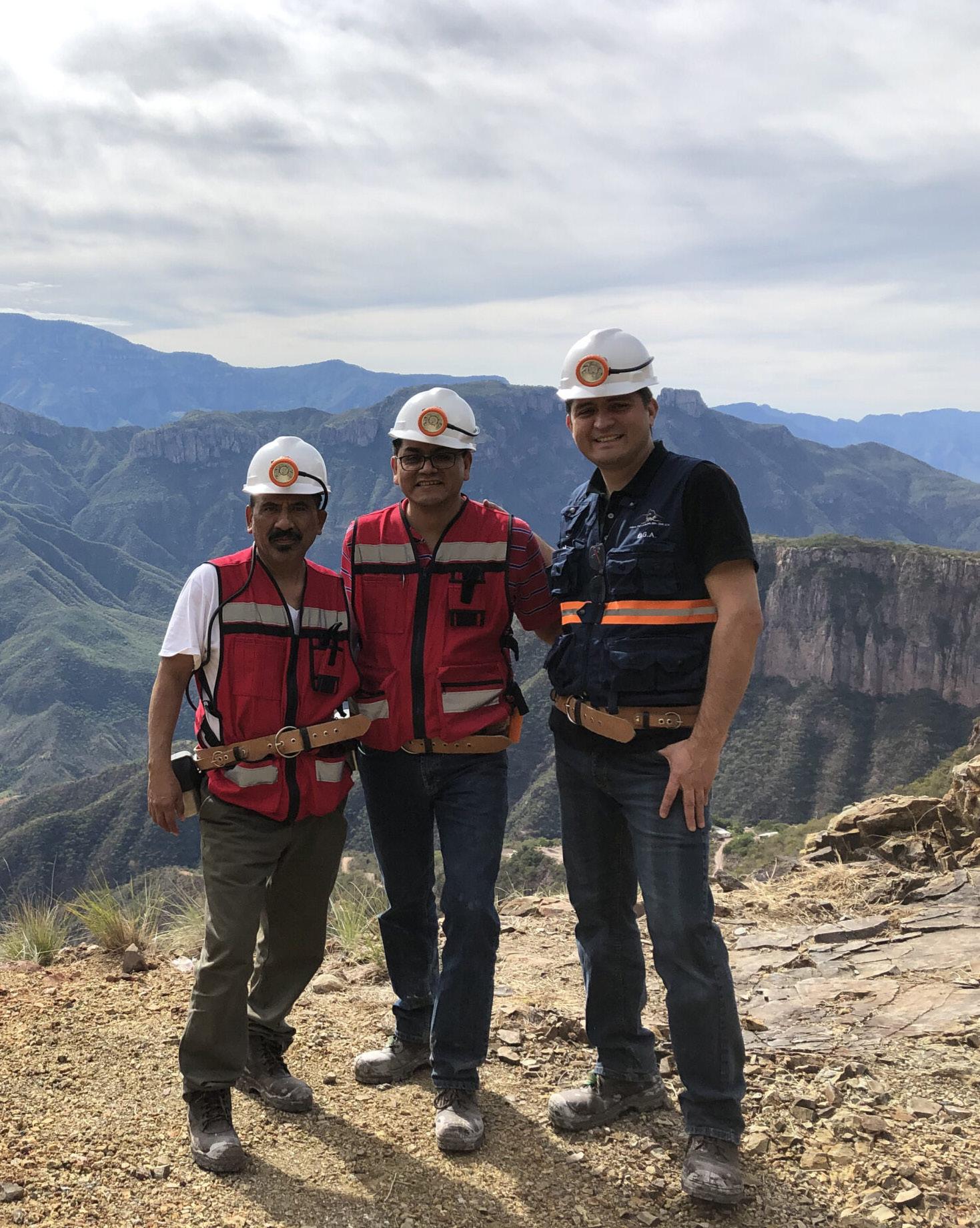

Music
Thousands of festival-goers enjoy music and sunshine at the 12th Sundown Festival
Beauty
Sol de Janeiro to Bring Brazilian Summer to London with Immersive Experience
Travel
Behind the Singular Architecture of The Lana Hotel




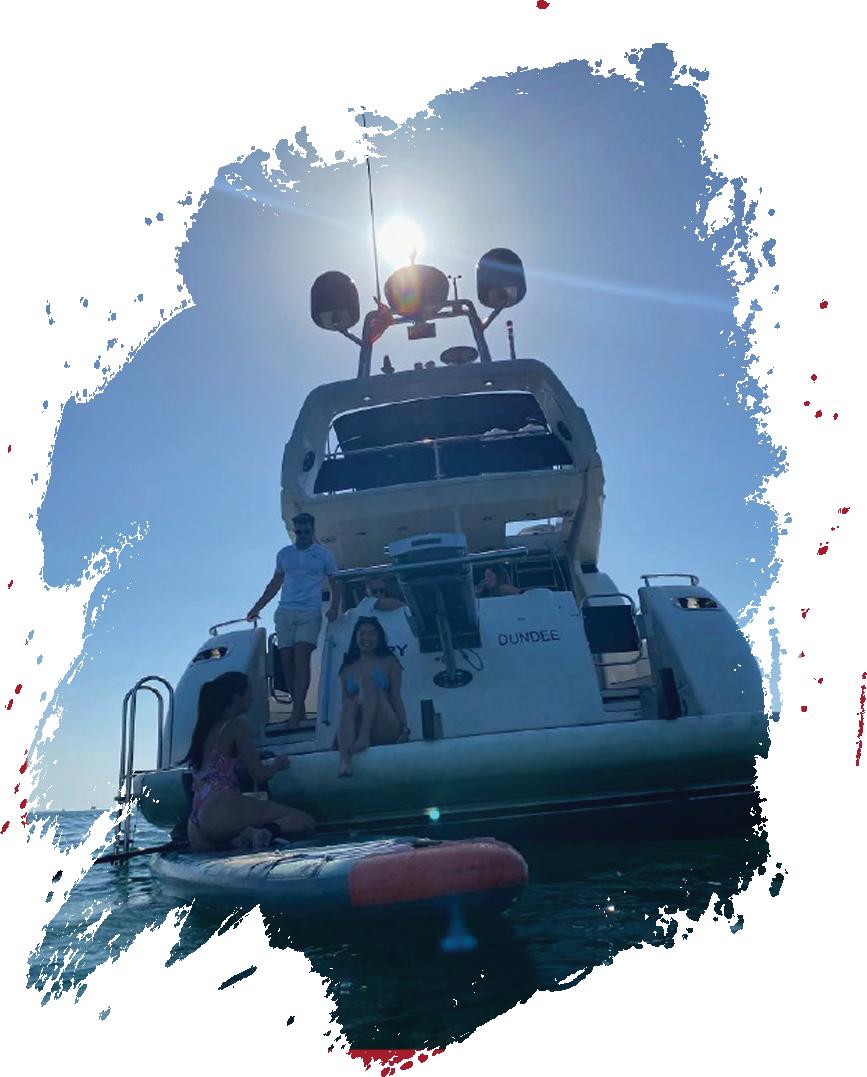

Cool Charter Vilamoura is a multi-award-winning yacht charter company renowned for delivering world-class, bespoke maritime experiences.
Founded with a passion for luxury travel and a commitment to excellence,
Cool Charter Vilamoura has quickly risen to become a leader in the yacht charter industry, ec ed ecc b e e ce de ee d de e e Whether for corporate retreats, special occasions, or exclusive leisure voyages, Cool Charter Vilamoura consistently exceeds client expectations, creating unforgettable experiences on the world's most beautiful waters.



Embark on an immersive full-day coastal exploration, where every moment is a celebration of luxury and discovery. Our expert crew will guide you along the enchanting coastline, unveiling its hidden treasures and storied past. Dive into the richness of our surroundings as you indulge in an array of onboard delights, from delectable snacks to chilled champagne and refreshing drinks, all crafted & served to perfection by ou
For those seeking a taste of coastal beauty in a shorter timeframe, our half-day excursions e e e ec b e d e d d e e Explore hidden caves, pristine beaches, and secluded coves. While indulging in delightful refreshments curated to elevate your experience.
Experience the magic of twilight aboard our luxurious Azimut 58 during our unforgettable sunset cruises. As the sun dips below the horizon, painting the sky in shades of gold and crimson, sip on your favorite beverages and bask in the tranquil ambiance of the sea. Perfect for romantic getaways, proposals, or intimate gatherings with loved ones.


Take your next corporate event to new heights with Cool Charters Vilamoura. Whether you're hosting a team-building retreat, executive meeting, or client appreciation event, the serene setting of a Cool Charter yacht cruise provides the perfect atmosphere for meaningful connections.
Combine business with pleasure as you collaborate, network, or unwind under a vibrant sunset or a sky full of stars. Elevate your corporate gatherings with style, exclusivity,
Don’t miss out—secure your booking now and ensure a memorable one-of-a-kind corporate event aboard our stunning yacht complete with personalized itineraries and world-class service. c d e e e


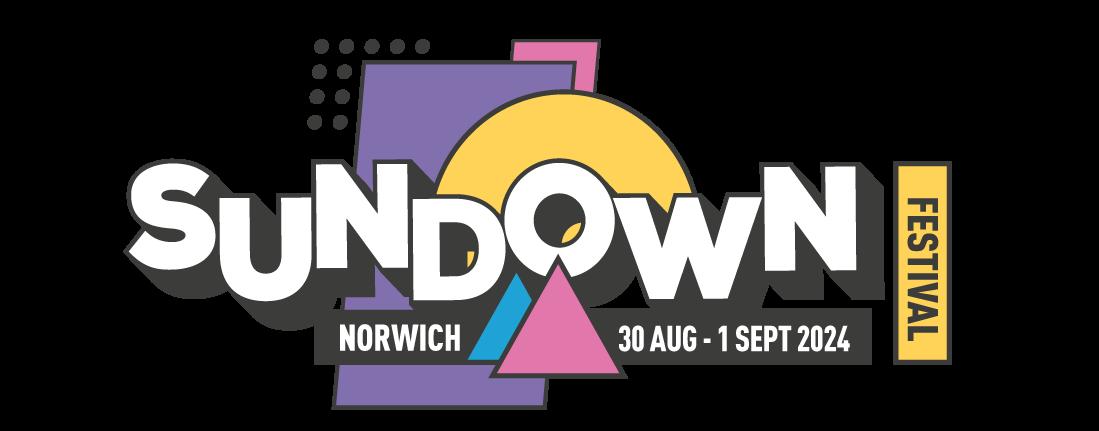


As summer begins to wind down, many in the UK look forward to one final celebration before autumn sets in. For music lovers in Norwich and beyond, that celebration is the Sundown Festival. In its 12th edition, the annual event, which took place at the Norfolk Showground, brought together a blend of music, sun, and unforgettable memories.
The Sundown Festival has solidified its place as a key player on the UK's festival scene, and this year’s edition was no exception. Thousands of people gathered for the three-day festival, enjoying not only the music but also the sunshine that graced the weekend. It was a much-needed reprieve for festival-goers after a summer marked by unpredictable weather patterns, offering them the perfect opportunity to bask in the sun while listening to some of the hottest musical acts from across the globe.
The 12th Sundown Festival featured an impressive lineup, boasting over 80 artists performing across five stages. With such an expansive roster, there was something for everyone, whether you were a die-hard pop enthusiast, an electronic music devotee, or simply someone who loves a good DJ set.
Among the headliners were Tom Grennan, Kenya Grace, and Grammy award-winning Flowdan. These artists, known for their unique sounds and electrifying performances, captivated audiences with their energy and charisma. Tom Grennan, fresh off the release of his latest album, brought soulful vocals and heartfelt performances to the stage. Meanwhile, Kenya Grace wowed the crowd with her distinctive style that blends elements of pop, R&B, and alternative music.
But perhaps the biggest draw for many was Flowdan, the legendary grime MC and Grammy winner, whose presence added a gritty, high-energy edge to the festival’s lineup. His performance had the crowd moving, cementing his status as one of the most dynamic performers in the scene.
What made this year’s Sundown Festival truly special was the diversity in its lineup. From pop to grime, from drum and bass to house music, the festival catered to a wide range of musical tastes. In an era where festivals often cater to niche audiences, Sundown embraced the eclectic, bringing together a mix of mainstream chart-toppers and underground favourites.
Alongside the headliners were many rising stars and breakout acts. This year’s lineup gave these emerging talents a platform to shine, allowing festival-goers to discover new sounds. Smaller stages scattered throughout the showground provided an intimate setting for fans to get up close and personal with the artists, creating moments that felt more personal and unique.


Of course, what made this year’s Sundown Festival truly stand out wasn’t just the music—it was the weather. For many festival-goers, the summer of 2024 had been a mixed bag, with unpredictable rain showers dampening other outdoor events. However, the Sundown Festival was blessed with three days of uninterrupted sunshine, creating an atmosphere that felt like the perfect farewell to summer.
The Norfolk Showground, with its expansive green spaces, was the ideal setting for festival-goers to soak up the sun. From relaxing on picnic blankets with friends to dancing the day away at the stages, the sunshine added an extra layer of joy to the festival experience.
For those who weren’t as keen on basking in the sun, there were plenty of shaded areas and cool-down zones where people could retreat and recharge before diving back into the music. The festival grounds were also well equipped with food and drink vendors, offering everything from traditional festival fare like burgers and chips to more health-conscious options like salads and vegan-friendly snacks.



Sundown Festival has always prided itself on its sense of community, and this year was no different. Despite its growing popularity and size, the festival maintains a friendly, inclusive atmosphere. Festival-goers often speak about the sense of camaraderie that permeates the event, whether it’s bonding with strangers over a favourite song or simply sharing sunscreen and water bottles on a hot day.
It’s this communal spirit that sets Sundown apart from other festivals. While many large-scale music events can feel overwhelming or impersonal, Sundown manages to foster a sense of connection among its attendees. Whether you’re a first-timer or a seasoned veteran, the festival has a way of making you feel like you’re part of something special.
Like many modern festivals, Sundown has recognized the importance of sustainability. As the environmental impact of large events continues to be a topic of concern, Sundown Festival has made strides in reducing its footprint. This year, the festival implemented several eco-friendly initiatives, including recycling stations throughout the grounds and incentives for festival-goers to bring reusable water bottles and cut down on singleuse plastics.

In partnership with local environmental organisations, the festival also worked to raise awareness about the importance of protecting natural spaces and reducing waste. It’s clear that Sundown is not only about providing great music and good times but also about making a positive impact on the environment and community.





As the 12th edition of Sundown Festival came to a close, there was already excitement brewing for what next year might bring. The festival organisers have confirmed the dates for the 2025 Sundown Festival as August 29th to 31st, marking another epic end-ofsummer celebration. Whether you’re a regular attendee or a first-timer looking to experience the magic of Sundown, next year promises even more excitement.
For fans eager to secure their spot at next year’s event, super early bird tickets are now available for purchase on the Sundown Festival website. Head over to Sundown Festival to lock in your tickets before they sell out. With the success of this year’s edition, demand is sure to be high as fans look forward to another weekend filled with sun, music, and unforgettable moments.
Festival organisers have consistently delivered a lineup that appeals to a wide range of tastes, and their ability to balance big-name headliners with upand-coming artists has kept Sundown fresh and exciting. While the full 2025 lineup has yet to be announced, fans can be confident that it will feature a similar mix of established stars and rising talent, offering something for every music lover.
For now, festival-goers can look back on a weekend filled with unforgettable performances, new friendships, and sun-soaked memories. As autumn approaches, the 2024 Sundown Festival will undoubtedly remain a highlight of the summer for all who attended. Whether it was the vibrant sounds of Tom Grennan’s vocals, the highenergy beats of Hedex’s drum and bass, or simply the joy of dancing in the sunshine with friends, the festival delivered an experience that will be remembered for years to come.
For those already counting down the days until next year, one thing is certain: Sundown Festival has once again proven why it remains a mustattend event on the UK’s music festival calendar. Don’t miss your chance to be a part of it in 2025—grab your tickets now!
www.sundownfestival.co.uk
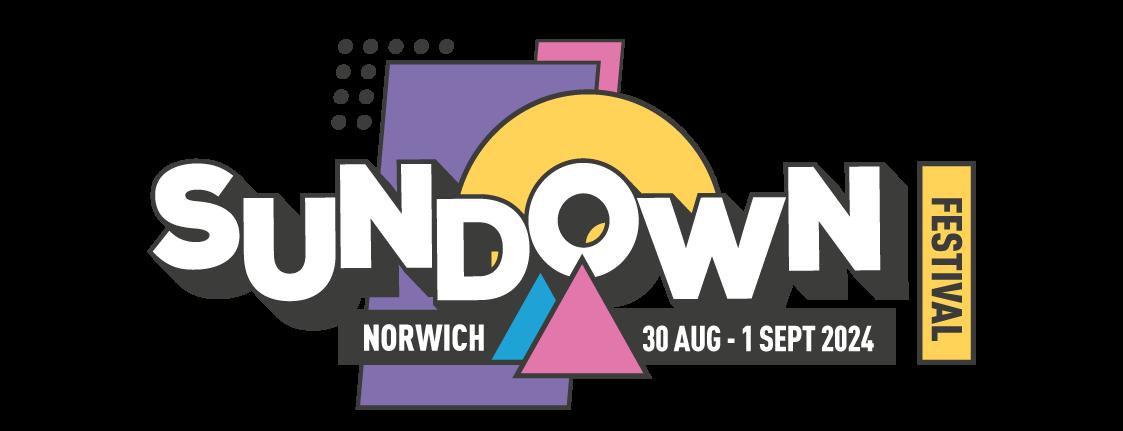
SoldeJaneiroissettolaunchan immersive360°Brazilian-inspired summerexperienceincollaboration withOuternetLondon,continuingits expansionintotheUKmarket. Theevent, running from28thSeptemberto4th October,aimstocapturetheessenceofa vibrantBraziliansummer.
Namedafterthe‘SunofJanuary’–when thesunreachesitshighestpointin Brazil–theactivationwillseektobring thewarmthandenergyofpeaksummer toLondon.Visitorswillbevirtually transportedtotheiconicbeachesofRio deJaneiro,wheretheconceptofSolde Janeirowasborn,usingcutting-edge LEDandimmersiveaudio-visual technology.
Thebrand,knownforembracing theBrazilianbeautyphilosophy,will complementthiswithliveBrazilian musicperformances,freesamplesof itspopularproducts,andrefreshing summertreats.LauraSimpson,PR& CommunicationsManageratSolde JaneiroUK&I,commented:“AtSolde Janeiro,ourmissionistoignitejoyand self-celebrationthroughthepowerand warmthoftheBrazilianspirit. Weaim toownsummer,encouragingpeopleto expresstheirauthenticselves–regardlessofsize,shape,gender,orskin colour.

Everyone is welcome at Sol de Janeiro, and we want our products to make people feel great, as if they are living their best summer life.”
Founded in 2015 by Heela Yang, Camila Pierotti, and Marc Capra, Sol de Janeiro has experienced significant growth, driven by best selling products like the Brazilian Bum Bum Cream and Perfume Mists. The brand, owned by the L’Occitane Group, has built a loyal following, with its

products flying off the shelves. This latest collaboration with Outernet London highlights the brand’s commitment to the UK market, following two successful popup events in the capital earlier this year. In a recent partnership with Lookfantastic at Battersea Power Station, Sol de Janeiro celebrated the launch of its Cheirosa 48 Perfume Mist with an exclusive popup featuring a custom-made ice cream truck inspired by the scent. Earlier, the brand also teamed up with Sephora for
a first-time collaboration, hosting a popup where customers could engage with product demos, workshops, and trials to discover new body care rituals and scents.
Sol de Janeiro’s continued investment in experiential marketing underscores its focus on spreading the joy and vibrancy of the Brazilian summer far beyond its home country.
www.soldejaneiro.com
Nestled high on the 29th floor of The Lana hotel, where design meets the sky, the Dior Spa offers a transcendent experience of wellness and opulence. With a sweeping view of the iconic Burj Khalifa, this sensory retreat marries the renowned expertise of the Dior brand with the serenity of Dubai’s elevated skyline, making it one of the city’s most exclusive wellness destinations. Guests are invited to indulge in a haven where relaxation meets high luxury—welcome to Dior Spa The Lana.
Stepping into Dior Spa The Lana is akin to entering a private sanctuary above the bustling streets of Dubai. Each treatment booth is designed with its own secluded relaxation space, creating an intimate environment of calm. Here, a curated selection of wellness juices and supplements heightens the spa’s holistic offerings, allowing guests to nourish their bodies while absorbing the breathtaking cityscape below.


Email: diorspa.lan@dorchestercollection.com
Phone: +971 4 541 6688
Lana is not just a destination—it’s an invitation to be transported to the pinnacle of well-being. Where luxury and wellness converge, Dior Spa at The Lana offers an unparalleled experience in the heart of Dubai.

The spa's unique allure lies in its Diorituals—two signature treatments designed specifically for Dior Spa The Lana. These rituals promise a sensory journey, from a deeply restorative futon treatment to a holistic massage that integrates semi-precious stones, exuding the essence of Dior’s spa philosophy. Each ritual aims to offer an escape from the ordinary, grounding guests in the luxury of their surroundings.
For those seeking visible rejuvenation, the spa's state-of-the-art facial and body technologies cater to both immediate and long-lasting effects. Whether it’s a single session targeting the stresses of city life or a complete course of treatments for enduring results, Dior Spa The Lana sets a new standard in personalized skincare and wellness.
For a fully immersive retreat, Dior Spa offers four meticulously designed wellness programs that invite guests to pause and indulge in moments of relaxation. Each experience is a carefully balanced combination of face and body treatments, ensuring that every guest leaves feeling rejuvenated, both physically and mentally. www.dior.com/en_gb/beauty/skincare/ diorspa-thelana.html

Jamie Waite
Group CEO, Be Media jamie.waite@busenq.com
Jason Westgate Chief Commercial Officer jason.westgate@busenq.com
Bryonie Knowles
Project Director b.knowles@busenq.com
Gary Smith
Senior Project Director gary.smith@busenq.com
Jess Collins
Project Director jess.collins@busenq.com
Munim Sikder
Project Director munim.sikder@busenq.com
Utkarsh Sharma
Project Director utkarsh.sharma@busenq.com
Glen Newton
Project Director g.newton@busenq.com
Adel Mhiri
Project Director adel.m@busenq.com
Paris Cressy
Branding & Marketing Executive paris.cressy@busenq.com
Hawi Okello
Project Director hawi.okello@busenq.com
Rory Keane
Project Director rory.keane@busenq.com
Xuan Sha
Content Development Manager xuan.sha@busenq.com
Claire Dunn
Global Credit Controller claire.dunn@busenq.com
Bethany Waite Credit Controller bethany.waite@busenq.com
Tanya Rudd Head of Finance tanya.rudd@busenq.com
Natoya Rimmer Global Head of Accounts natoya.rimmer@busenq.com
Kumar Nil-Khan Senior Data Strategy kumar.nilkhan@busenq.com
Simon Ferrening Production Manager Commercial Performance Analysis
Anita Terrell
Social Media Manager anita.terrell@busenq.com
Lee Dixon Social Media Manager lee.dixon@busenq.com
HR
Susan Tumelty HR Partnered Company info@hrdept.co.uk
Chloe Bird Birketts LLP Norwich


Laura Watling Editor in Chief laura.watling@busenq.com EDITORIAL
Carol Gibson Lead Editor carol.gibson@busenq.com
Rebecca Matthews Senior Journalist rebecca.matthews@busenq.com
PRODUCTION
Roisin Reynolds Head of Production roisin.reynolds@busenq.com
Cheraleigh Van Zanten Production Manager cheraleigh.vanzanten@busenq.com
Jamie Bolton Head of Design jamie.bolton@busenq.com
Shah Abbas Head of Video & Content Creation shah.abbas@busenq.com
WEBSITE
Matt Hardwick Online Website Manager matt.hardwick@busenq.com
PHOTOGRAPHY
Didie Nturo Lead Photographer didie.nturo@busenq.com




